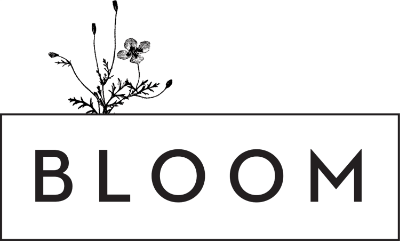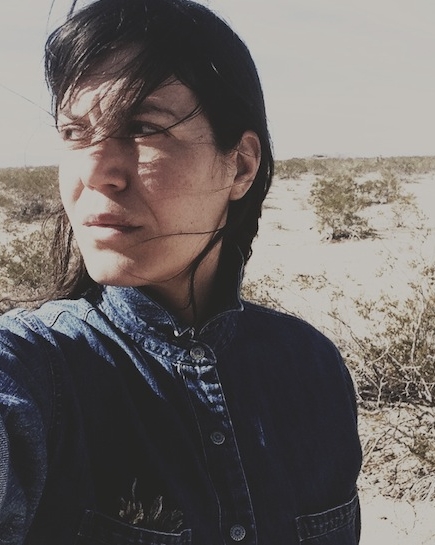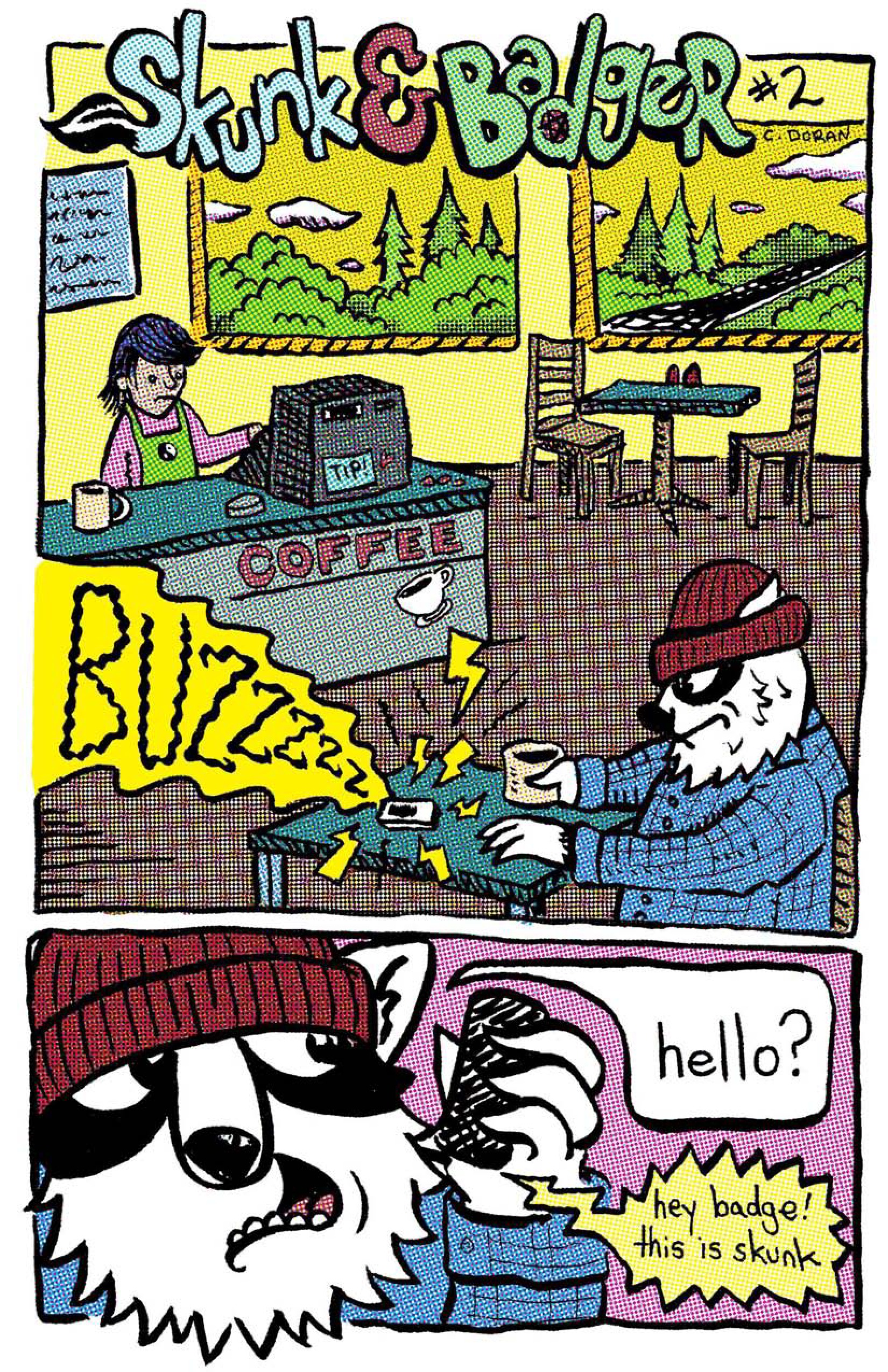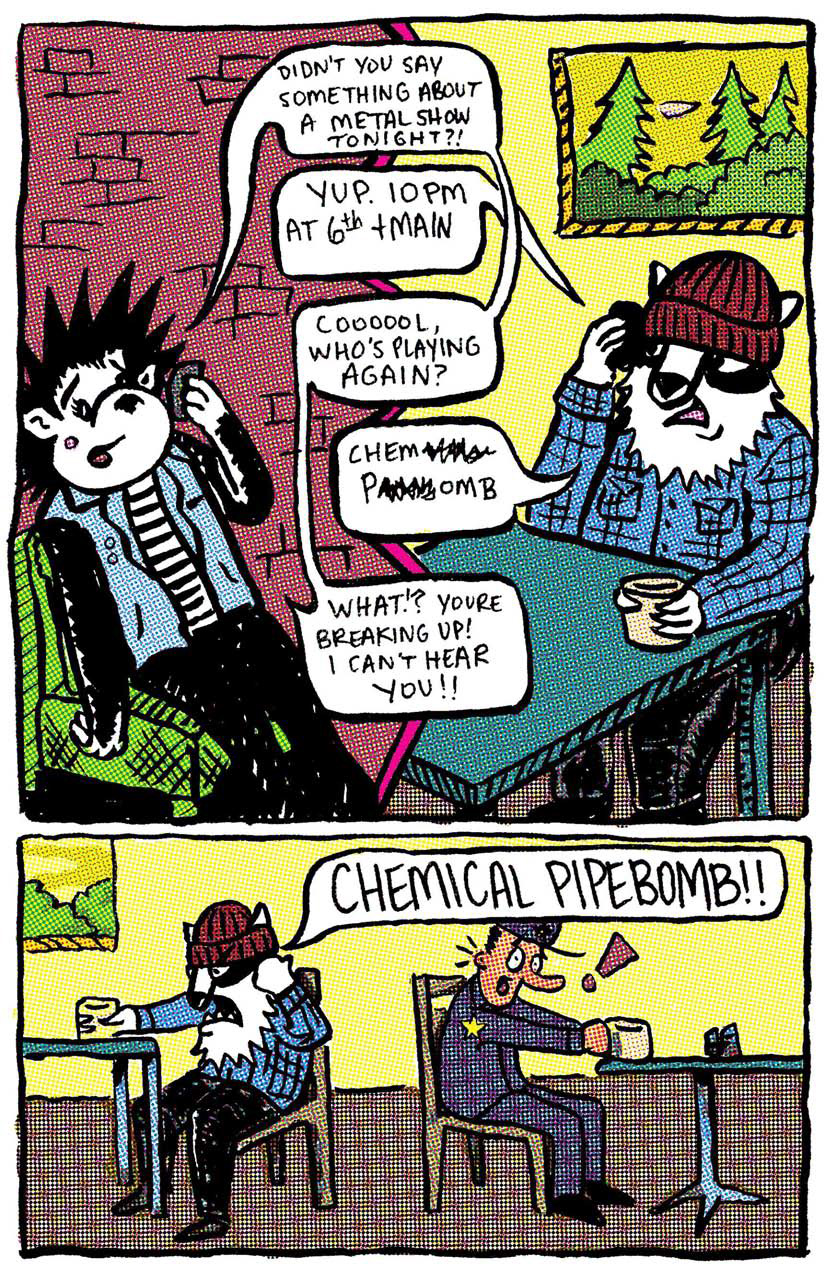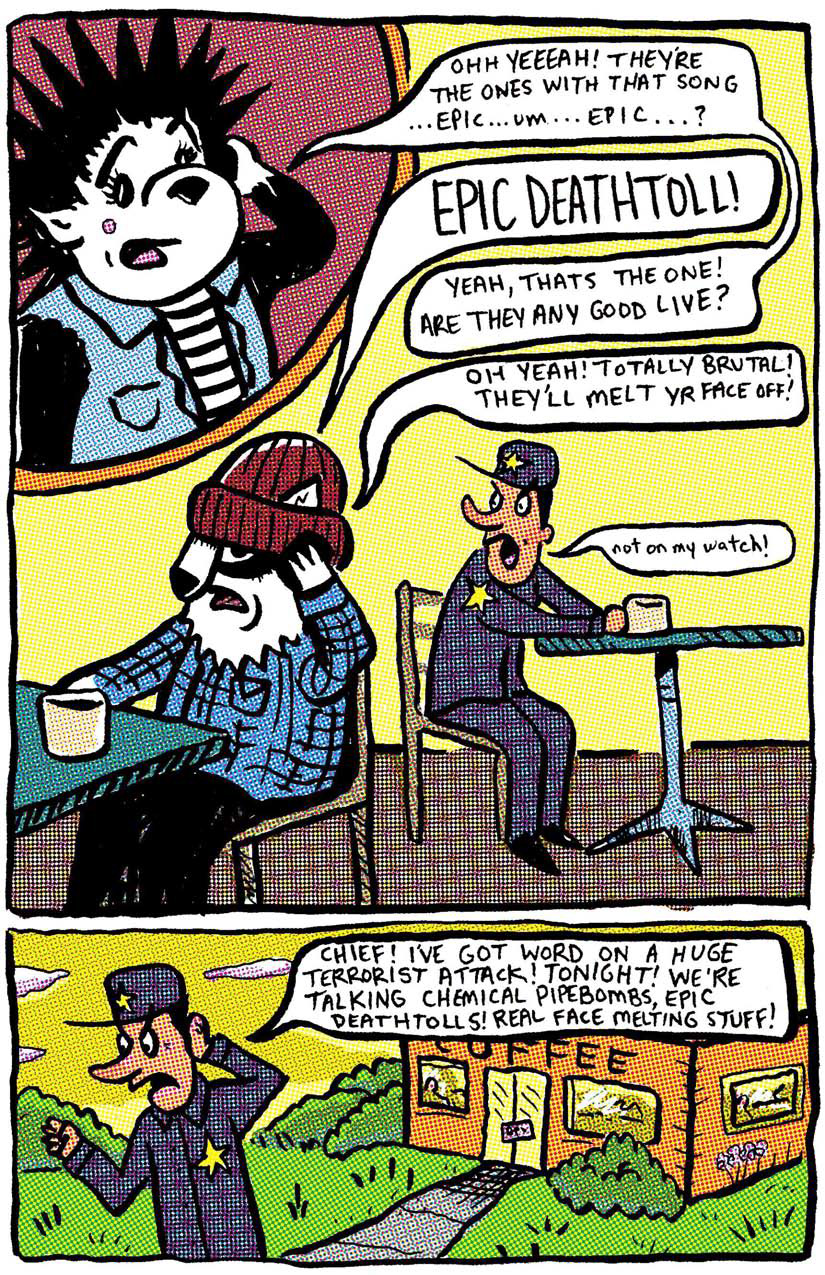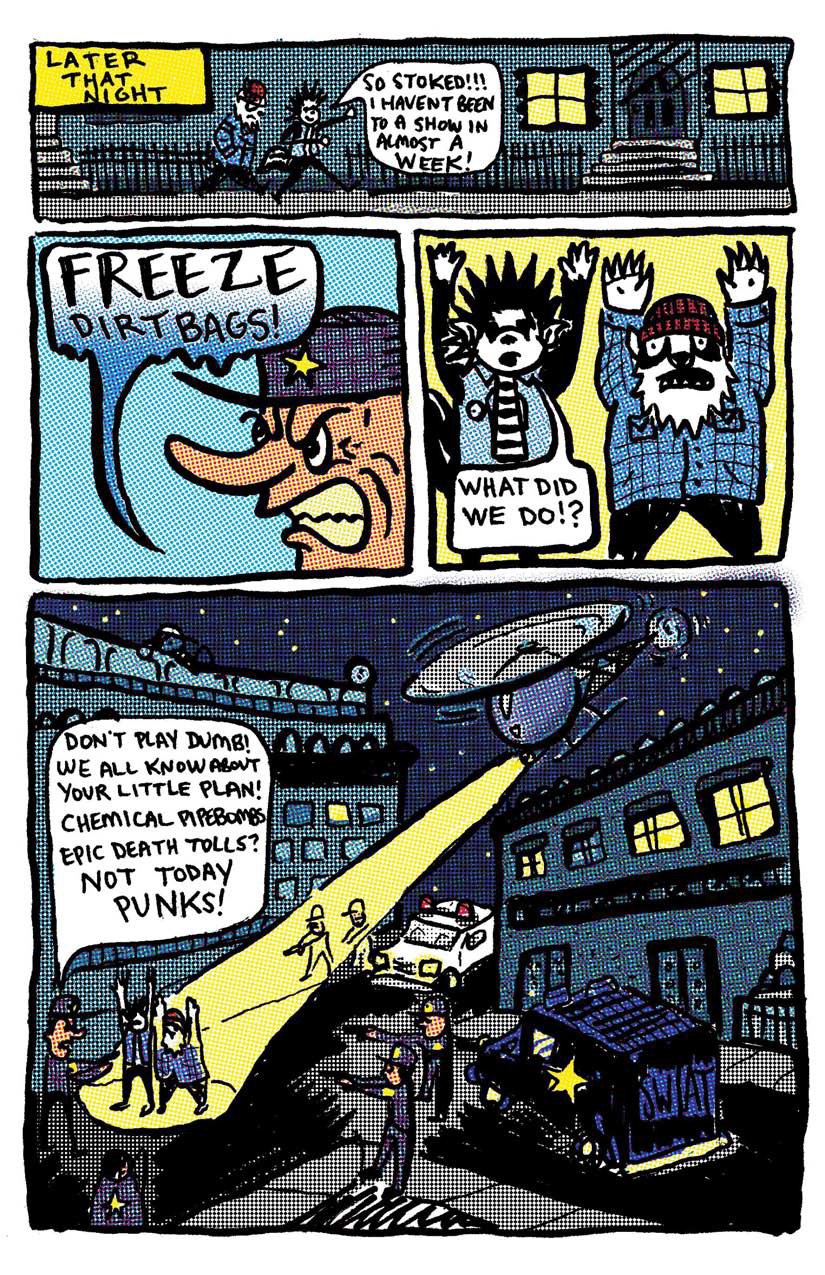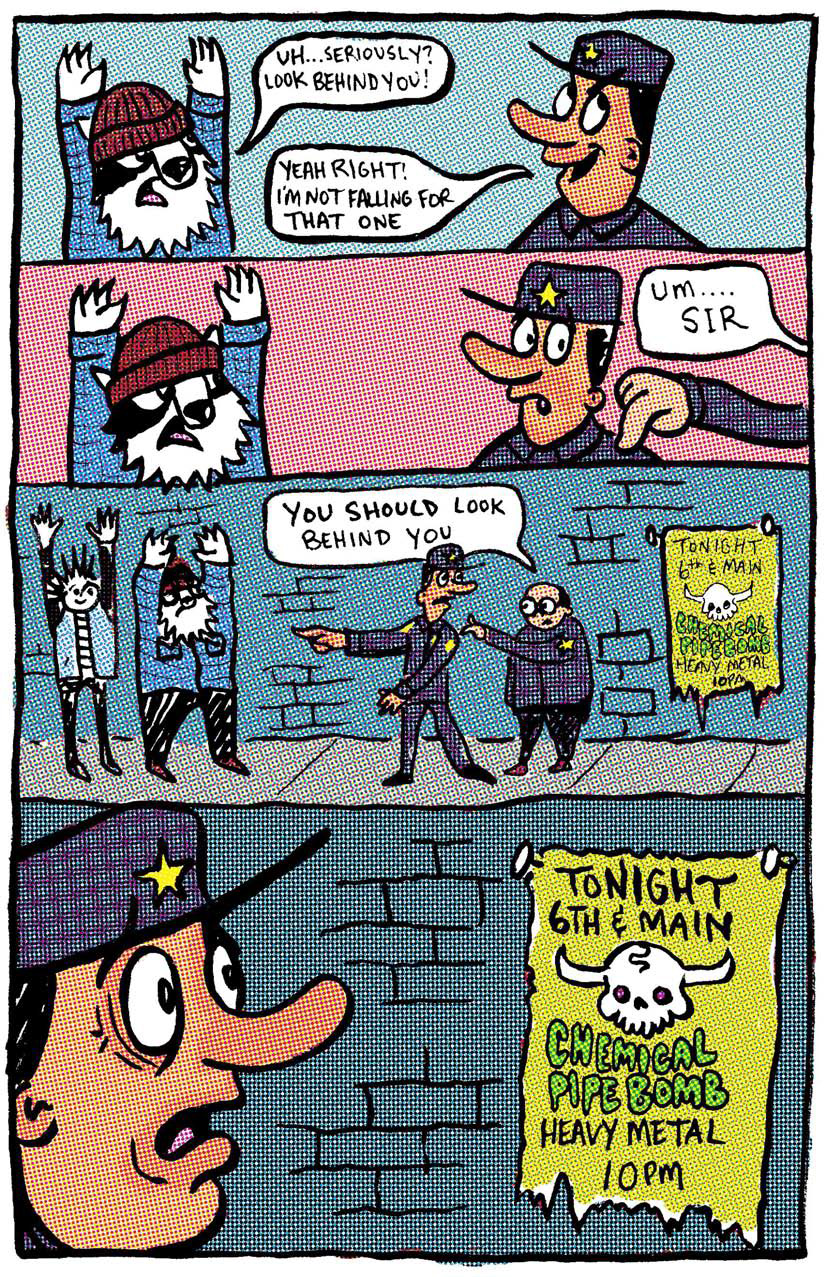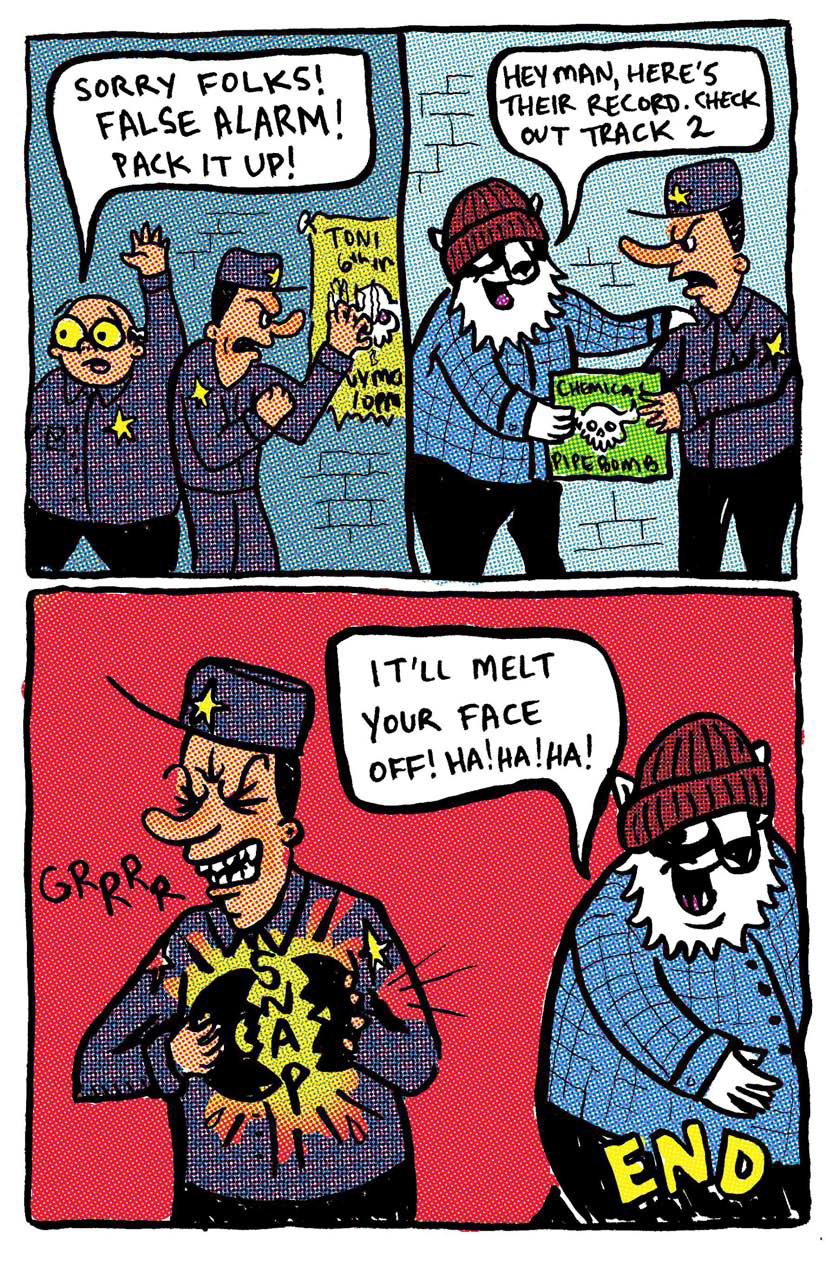Studio visit and interview with the Jacksonville based visual-artist, Crystal Floyd. Skillfully blending her love of foraging and the natural world, Crystal brings her accidental findings to life by creating compelling works, playing with memory, allusions, and history in a number of unexpected ways.
Read Morecraft
Save Yr Skin: Choose Wyldcraft Soap
Wyldcraft provides organic handcrafted soaps made from scratch with thoughtfully chosen, alimentative ingredients. Each step in Elizabeth’s process requires almost a surprising amount of detail, explaining why such an assumingly simple practice would provide much fulfillment. But beyond basics of the process itself, is Elizabeth’s expertise on natural ingredients and their skin-healing properties that truley makes these soaps so rad.
I joined Elizabeth during her last soap making sesh, and quickly realized how much thought that she puts into each batch. Precise calculations, basic chemistry, skin-saving oils and clays, patience during pours… and let me tell you that girl does a mean marble – all for a single bar which provides skin a lil needed relief.
Below is an interview (and photos!) with Elizabeth, that while showcases her work with Wyldcraft, really expands on her passion for lifestyle wellness and natural ingredients. And as with hopefully all our Craft stories, is quick to inspire the worth of sustainability, handcrafted, and homemade.
What’s the inspiration behind your (label, business?) name, Wyldcraft?
Nature, craft and cookbooks. I like to use ingredients that occur naturally in the earth -- from plant materials to vegetable juices to wild harvested herbs to natural clays. My soaps are hand cut, artisan crafted and always made in small batches.
Why soap?
It's fun to get creative with color blends and scents while promoting healthy skin by means of natural exfoliation, repairing damaged skin cells and rejuvenating skin. The alchemy part is pretty cool. And plus I live a pretty dirty, outdoorsy life so I can never get enough soap.
Any other body care products in the future of Wyldcraft?
Yes I think so, I'm currently growing some comfrey and calendula in my garden that I would love to test out in a salve. I've experimented with castile soaps and body butters as well. If things don't get too busy, I do see a broader spectrum of products growing with wyldcraft, but for now i'd just like to be making and selling more soaps.
How much actual chemistry is involved with soap making? Does the scientific side of soap making draw you to the craft?
All of my soaps are created using the cold process method, which, without getting too technical, is done by mixing a lye (sodium hydroxide NaOH) and filtered water into a mixture of oils. The sodium in the lye links up with the individual fatty acid molecules in the oil, creating soap! All of my batches are super fatted to 5-7%, which means theres a little extra fat/lye ratio, aka they they won't strip your skin of its moisture, just the dirt. When superfatting, I have to figure out how much lye I need to react with the mix of oils I choose to make the amount of soap I want, then add an extra 5% of oil, usually a combination. Science rules.
What’s some of your favorite ingredient combinations?
Charcoal//peppermint, black walnut//oat, and clay//lavender are probably my top three favorite soap combos. If I'm doing an exfoliating soap my favorite ingredients to use are poppy seeds, dried coconut, oats, and lavender buds. Today I harvested some dandelion flowers so I'm excited to try those out as decoration on my next batch!
Your soaps are labeled vegan, what does that mean?
No animal products. No animal fats, milk, beeswax, or honey. No preservatives, detergents, dyes or artificial colors either. Always tested on friends and never tested on animals ;)
What advice would you give to someone looking to begin making their own soap?
Learn everything you need to know about the science and be patient cause your going to do a lot of experimenting first. The most dangerous part is measuring the lye and adding it to the water. Make sure you have safety goggles, gloves and a dust mask throughout this stage. Make sure you have the right equipment too. NO METAL SPOONS, or metal anything (it causes a bad reaction with the lye/water). Oh and stick blenders -- there's the good, the bad, and the ugly; quality is worth every penny when it comes to soap making.
What’s in store for the future of wyldcraft?
I've started really slow with this business. Making soaps for friends and selling them at random art shows and small scale craft markets is really all I've done. I'd like to just generally make more soap and have more stockists in my own town.
Do you have a go-to set of ingredients, or ingredient, when making soap?
Most of my soaps are limited edition. I get bored easily with ingredient combinations and I can never seem to duplicate them exactly. I always work in small batches and just keep experimenting because the possibilities are endless with scents and aesthetics. The oils I use are the only ingredients that remain the same. This includes: coconut oil, sweet almond oil, olive oil, and shea butter.
What’s the stand out difference between hand-crafted soap vs. store bought soap?
You just opened up a can of worms. Whatever soap you buy, or any body product for that matter, you should be paying close attention to the ingredient lists. A lot of commercialized store bought soap contain ingredients derived from the non renewable oil industry. This is no good for you or the environment. Petroleum jelly and Sodium laurel Sulfate for instance. Stay away from those. SLS is the main ingredient in most shampoos and liquid soaps that causes foam. It acts as an estrogen on your body and has been responsible for a bunch of health implications from PMS and menopausal symptoms to dropping male fertility and an increase in breast cancer. American Cancer Society doesn't want to believe the danger, the EPA considers it a "probable" carcinogen, and the FDA wants it banned. Reading ingredients like SLS and synthetic food dyes on the back of a product that I could possibly rub all over my body just makes me freak out. Just pay attention to labels and do your research before deciding what to put on your skin!
***
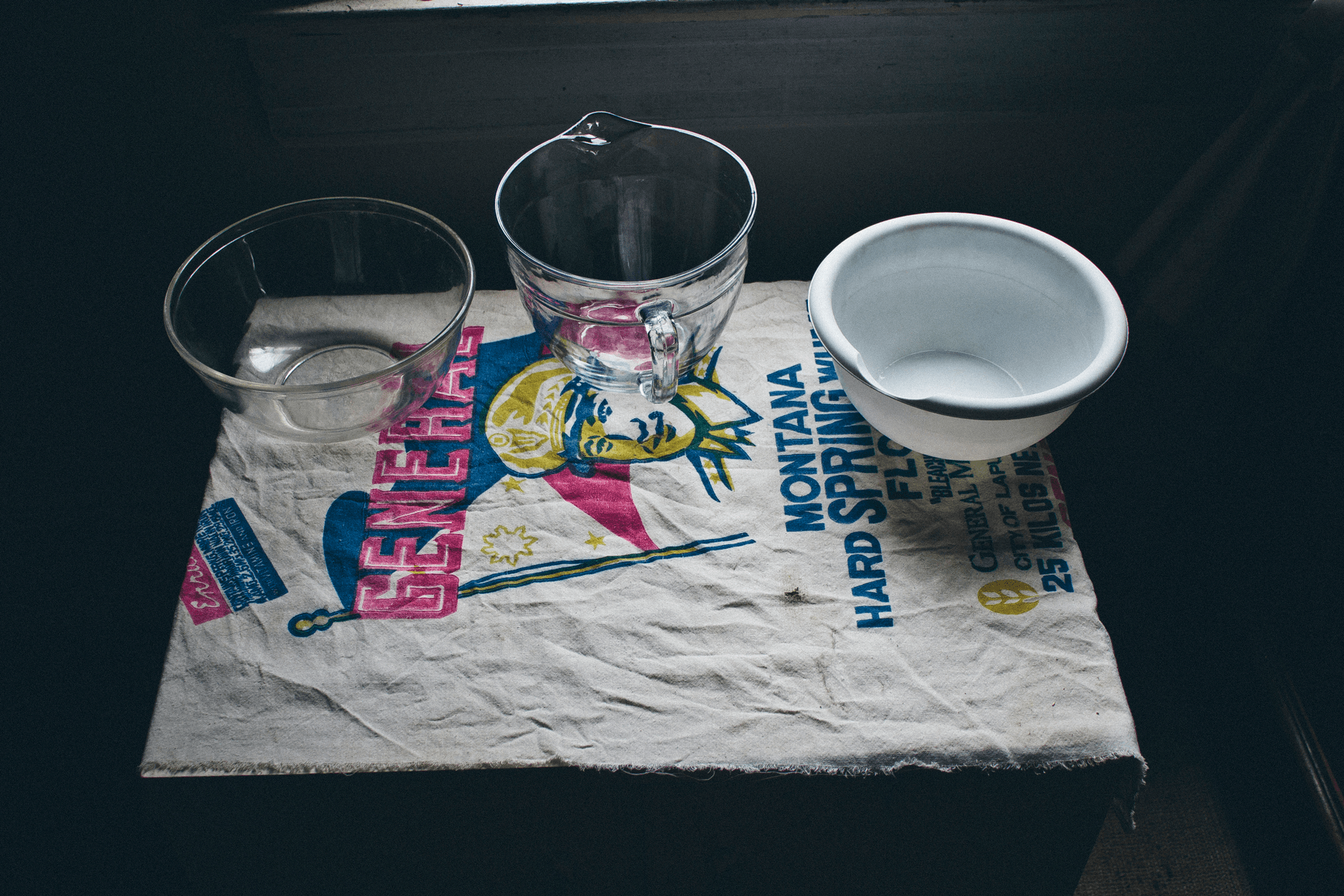
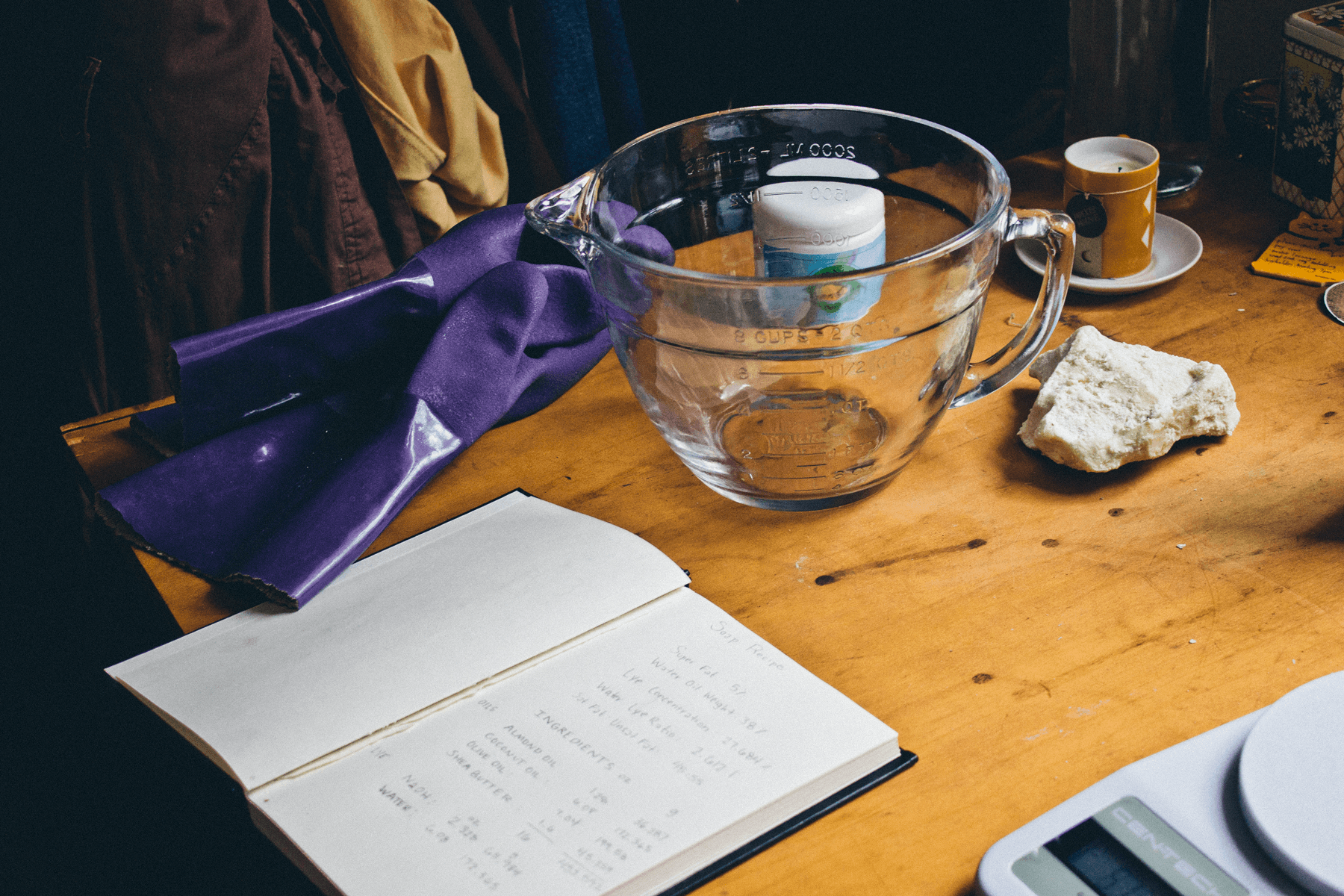
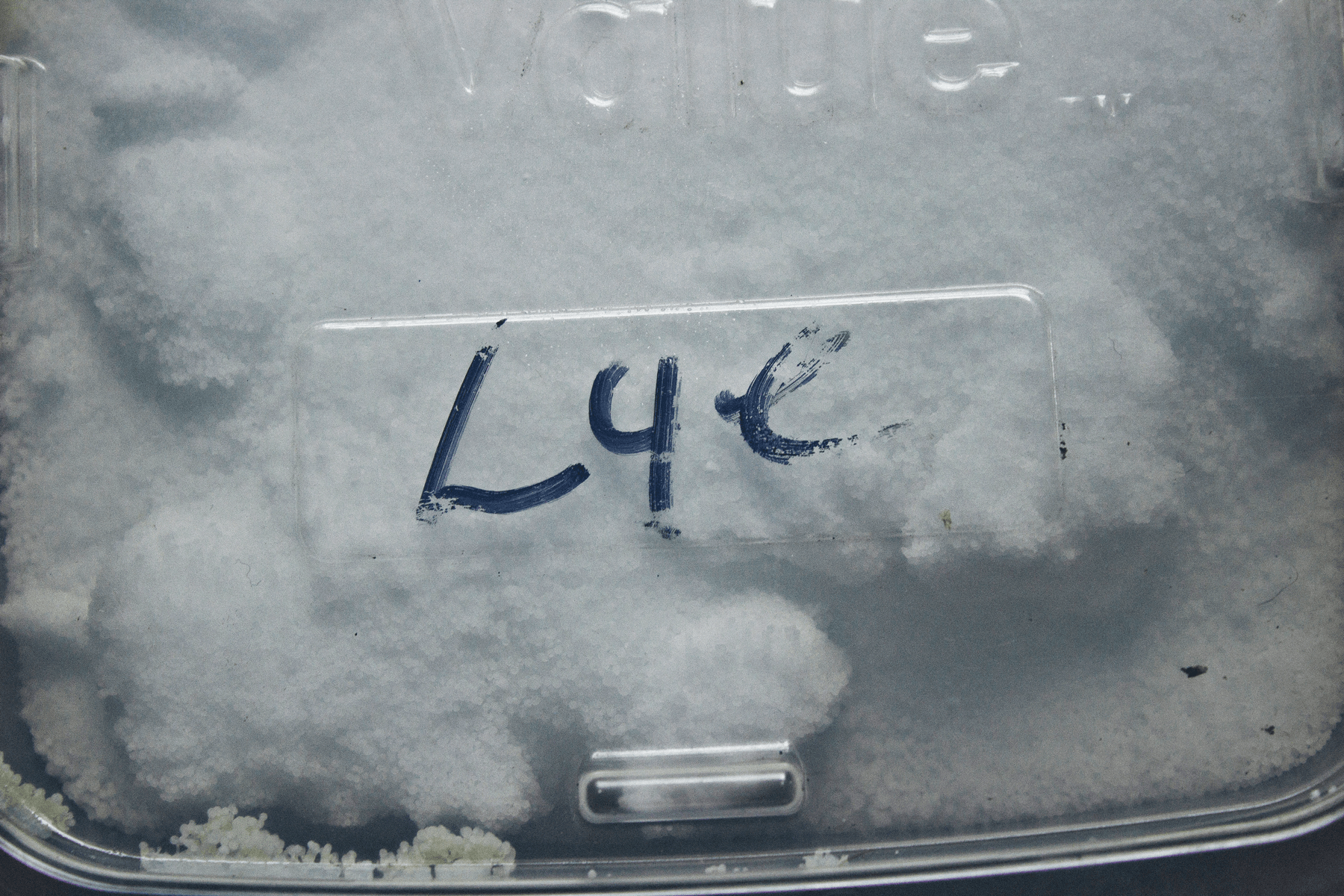
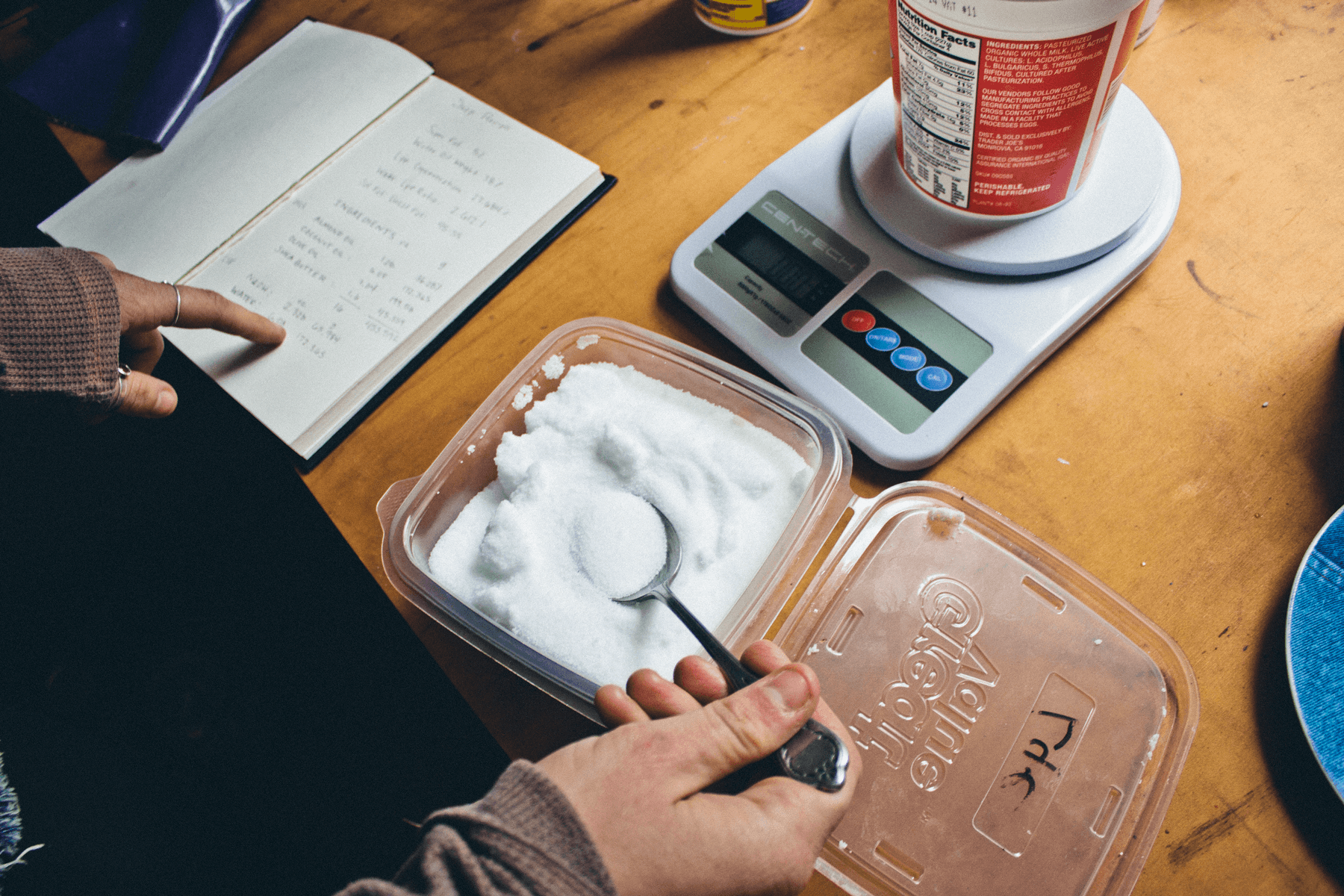
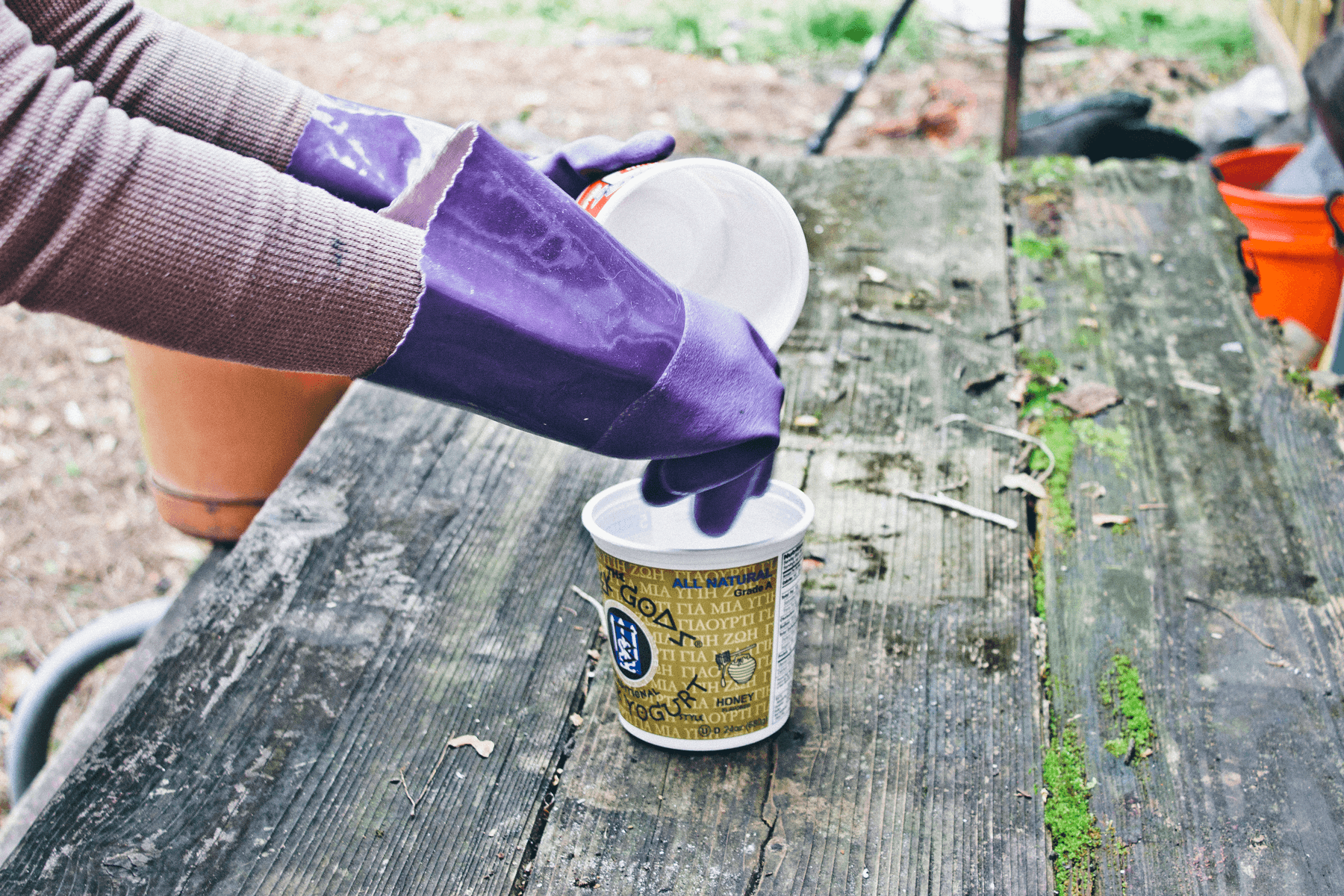
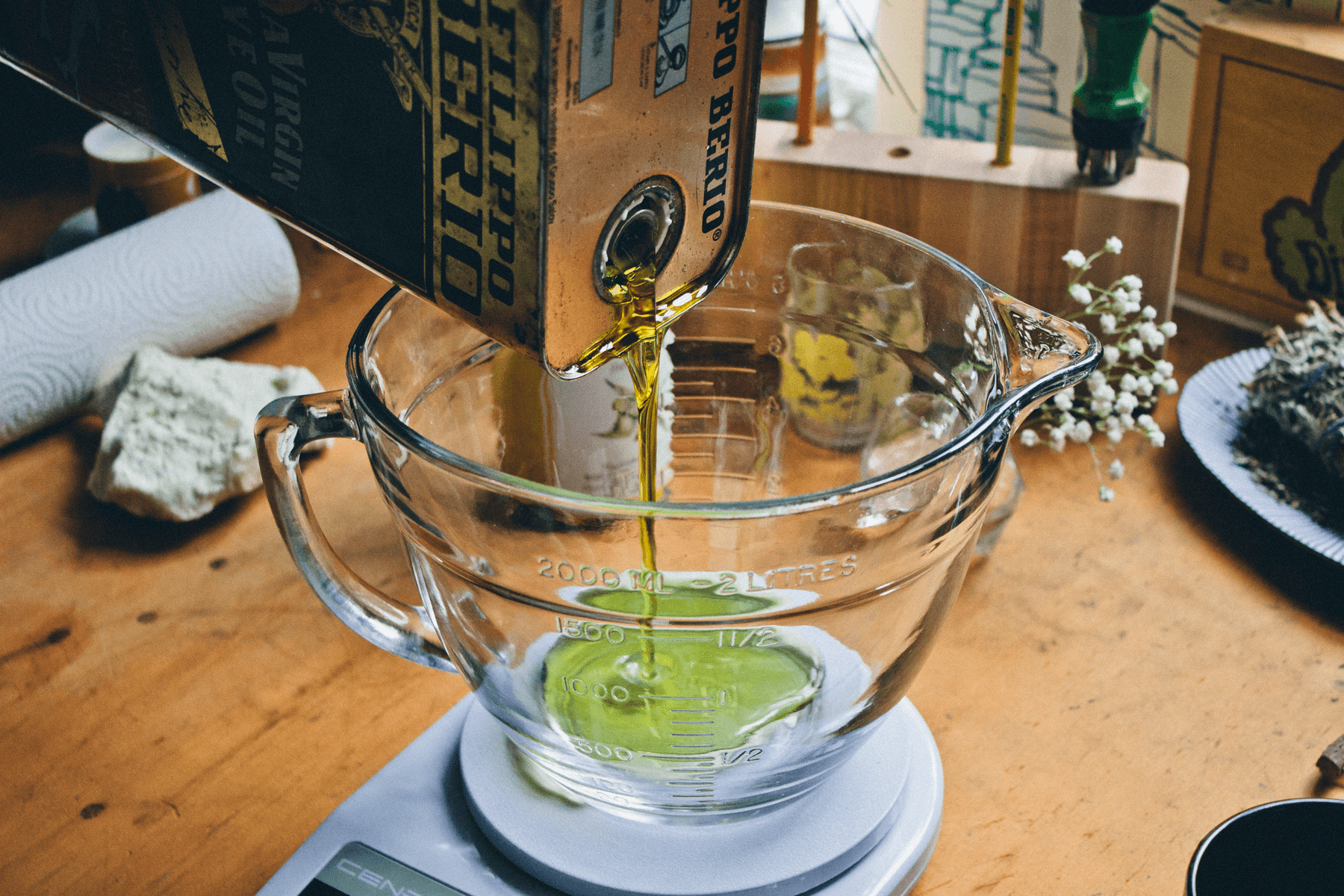
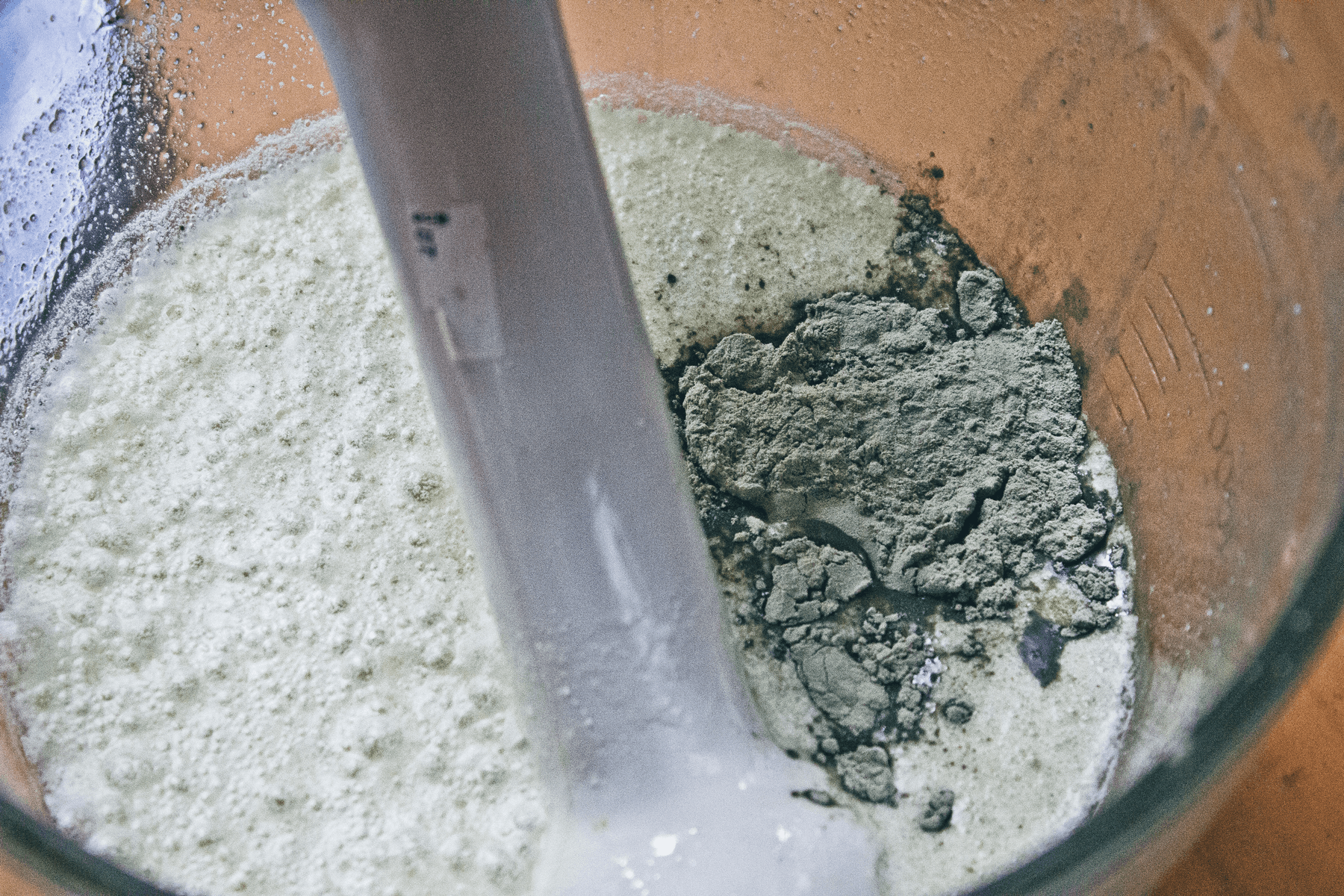
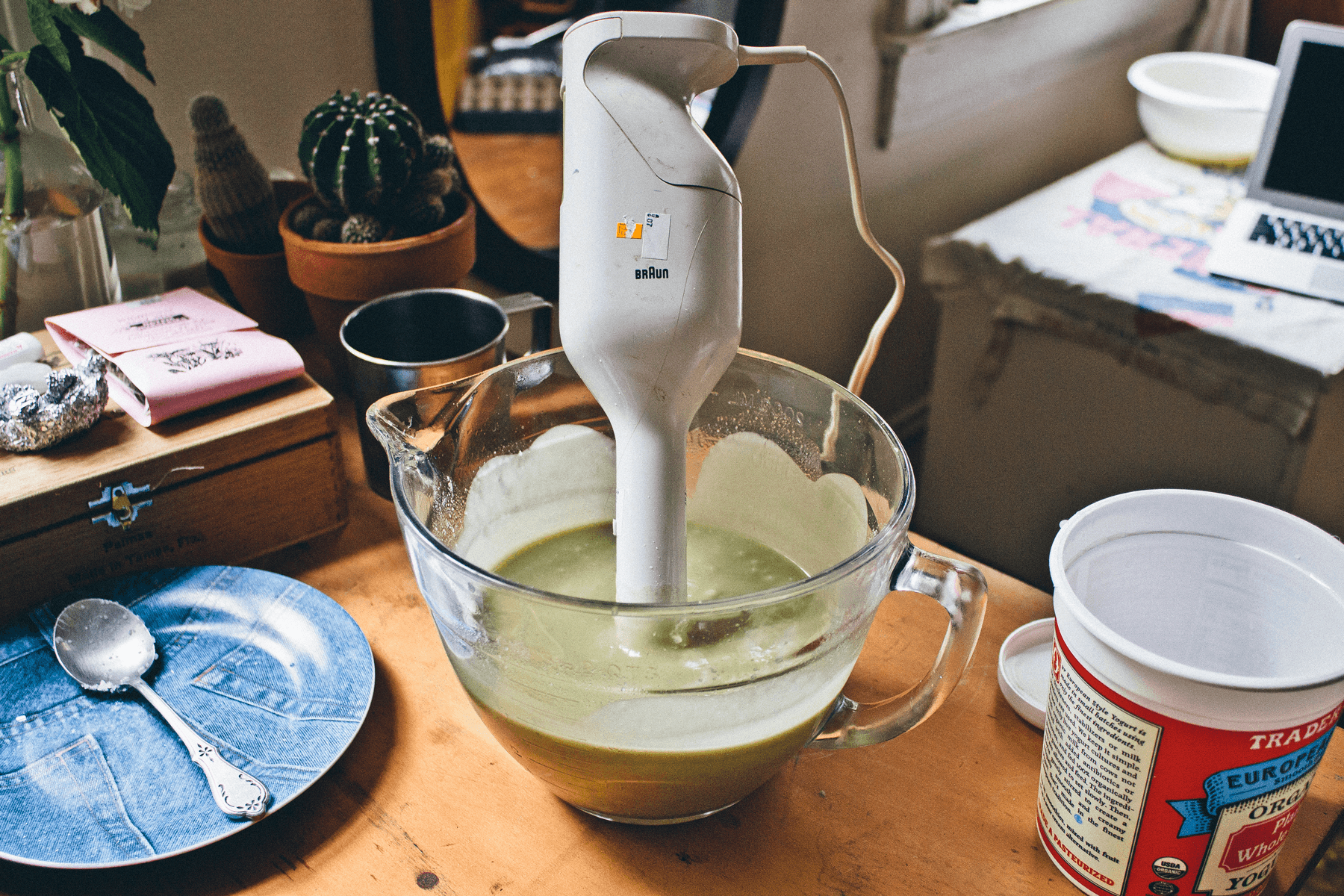
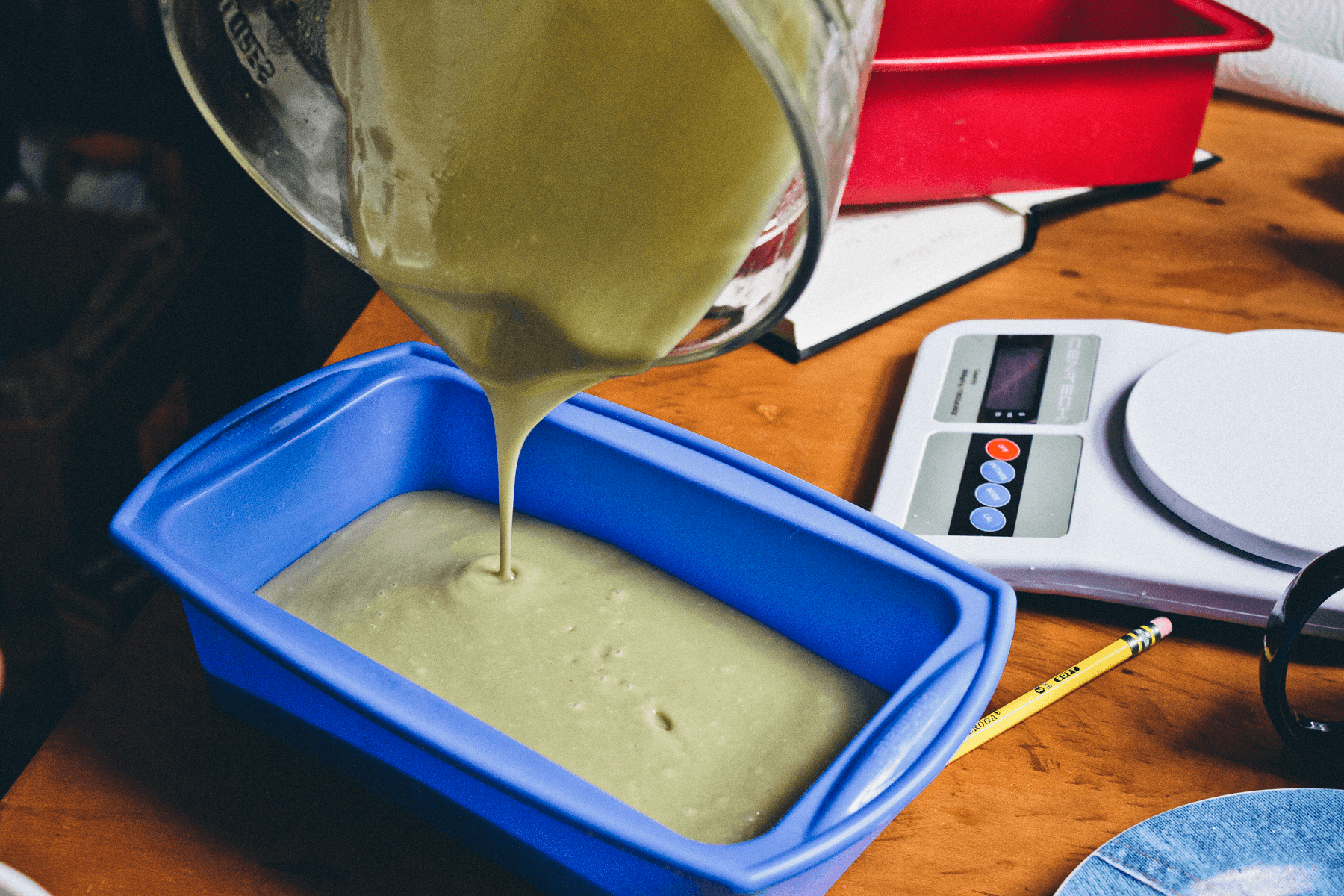
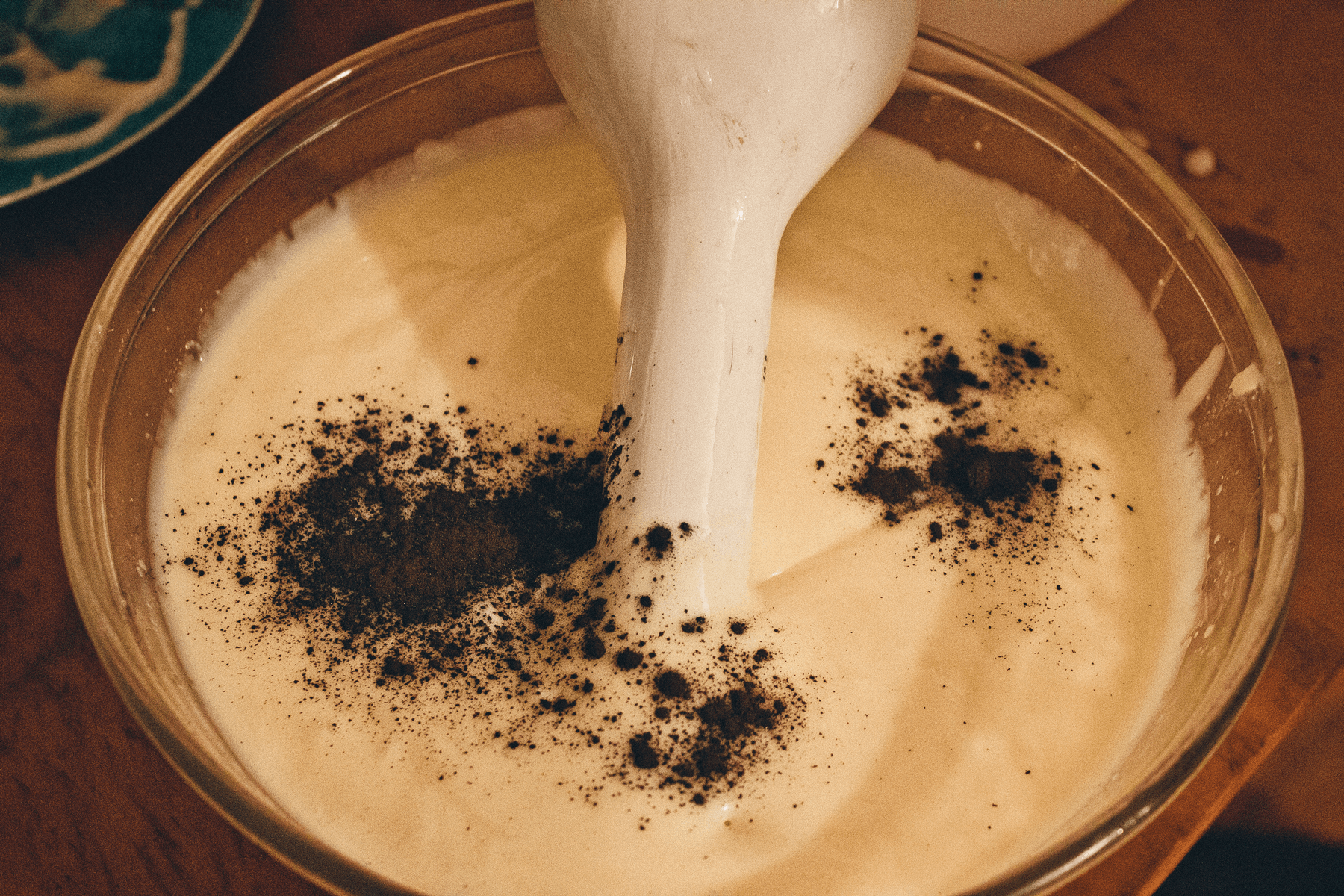
For Villagers
During Bloom's seedling stage, I was just on my way out of Western North Carolina, returning home to Tallahassee. While living in North Carolina, I frequented Asheville often for errands and good food, but never really immersed myself in their local businesses and community. I lived just far enough up in the mountains to make that 20 mile drive feel like 2 hours.
Nevertheless, I was on my way out of town when I first discovered a locally-run shop formerly known as Small Terrain, now as VILLAGERS. Visiting their site for the first time, I remember that this shop embodied so much of what we were trying to shape with Bloom - aesthetically beautiful and inspiring to our own lifestyle interests of wellness and sustainability. What completely enamored us with VILLAGERS was the brief bio of shop owner, Natalie Pollard:
“The shop creator, Natalie Pollard, earned her Masters of Landscape Architecture from the University of California at Berkeley, an herbalism certificate from the Chestnut School of Herbal Medicine in Leicester, NC, and her Bachelor of Fine Arts from the Academy of Art College in San Francisco, CA. She worked as a landscape designer for Olin Studio in Philadelphia, interned with Project for Public Spaces in New York City, managed an urban CSA program at Greensgrow Farms in Philadelphia, and worked as a professional photographer in San Francisco, CA. She has volunteered with several environmental non-profits, community gardens and urban farms. Traveling to over thirty countries has given her a global perspective on environmental issues and their relationship to urbanity, politics and public health. Since moving to Asheville, she has worked at the North Carolina Arboretum, the West Asheville Tailgate Market + local farms, and volunteered with the Asheville Design Center and OPEN Asheville.”
Obvs, instant girl crush set in. We hadn’t even visited her store yet and were already in love. Unfortunately time went by, and I wasn’t able to visit NC as frequently. Bloom became so busy within our own community, that we sort of lost touch with this little dream shop.
As Bloom has grown - our content, inspirations, manifestations - it felt like the right time to pick up where we left off on our curiosity for VILLAGERS.
VILLAGERS is an urban homestead supply and design shop. AKA: Bloom’s dreams actualized.
Beautifully crafted and expertly curated with locally made goods, VILLAGERS provides that familiar, warm n’ fuzzy feeling you might get going inside a home, rather a store - which is really a beautiful thing, as the supplies and goods for sale only inspire a more “harmonious” way of living. There’s everything from bees wax for protectants to specially made fermentation crocks to a whole wall of specially chosen herbs. It’s almost a good thing I don’t live there anymore, as I’d be dead broke…
But even after all its wonder as a store, there are so many other facets which makes VILLAGERS truly inspiring. The shop regularly hosts varied community workshops, led by experts of the field that welcome all types of interests, such as introduction to bee keeping, composting correctly, vermicomposting, and so on.
I was lucky enough to attend a workshop while visiting Asheville recently - Women’s Herbal Trio: Shatavari, Rose + Vitex - led by Clinical Herbalist Christina Bertelli. In the class were several woman of varied ages and personal experiences with natural healing. A truly encouraging experience, I couldn’t help but leave with a renewed sense of community engagement and the pursuit of knowledge to better my body.
Natalie was unfortunately out of town during this workshop, but the realization of her vision was obvious throughout the shop: its role as a local resource for homestead supplies and instruction; the growth of community camaraderie through educating workshops on lifestyle wellness; and ultimately, if at the very least, inspiring for the betterment of your living environment and lifestyle towards good health and sustainability.
Though I couldn’t meet her in person, Natalie kindly shared her time and knowledge with us in the interview below. After reading me gush, like *really ok we get it* gush over VILLAGERS and the result of Natalie's hard work and accomplishments, it’s super inspiring to sorta peak into her mind with what interests and experiences led her to where she is today.
It was at least to us, especially as our overlapping passions embody all that we as Bloom hope to cultivate: communities driven by characteristics of locally ran, organically grown, naturally sustainable, and beautifully crafted goods.
After reading your bio (on the Villagers site), it sounds like you’ve already lived such a full and well-traveled life. Where along that journey brought you to where you are today?
This is challenging to answer without writing my life story! I feel that everything I have experienced in my life has brought me to where I am now - a golden thread links each and every choice, experience, relationship, etc. That said, there are certainly key moments that come to mind.
In my early adulthood I became sick with a virus that depleted my immune system and energy levels. I had to stop in my tracks and re-evaluate everything in my life in order to regain my health. At this time I discovered the healing powers of nutrition and yoga, and witnessed how transformative it can be to take care of oneself.
While making art, I discovered my passion for landscape. I realized that the photographs and paintings I created were reflective of my interest in how humans interact with the place we inhabit, the resources we consume and the politics of landscape. At a certain point, I lost interest in the act of making art. I wanted my creative energy to be more directly connected to that which was fueling it instead. That is when I decided to study landscape architecture. The field interests me because it combines design + creativity with tangible, practical applications of transforming our landscapes toward a healthier and sustainable future, for everyone. Well, it at least has the power to do that, when executed well.
Similarly, when I travel, I am constantly observing the ways in which people interact with the land they inhabit. Having experienced so many different cultures, I have witnessed the similarities that bind us together as a collective whole, regardless of our background or heritage. It is these things, the essence that binds us, that interest me the most about life. I like to think that is the essence behind all of the work that I do, in all its varying forms. I see this little shop, Villagers, as a manifestation of everything that I have learned so far on my journey, and a means for me to share that with my community.
It seems as though you’re pretty familiar with both coasts of this country – anything in particular that draws you to the east coast?
I was first drawn to the east coast when I spent a summer living in a warehouse in Greenpoint, Brooklyn. During graduate school, I decided to work as an intern for Project for Public Spaces in New York. My work involved spending time in public spaces in Manhattan, observing and analyzing how people engaged with one another and the built environment. Pretty much my dream job!!! My roommates called me the 'professional people watcher'…haha. Anyhow, I think what I enjoy most about the east coast (when speaking of both New England and the Southeast), is the intellectual dialogue here. I think I have gained a greater sense of the history of this country and what it truly means to be American….in all its glory, and all its tragedy.
What projects/events/workshops/etc. does Villagers offer to the local Asheville community? Why do you feel like this is important?
We offer classes and workshops for gaining traditional knowledge and skills, mostly related to growing and processing one's own food and medicine. For example this month we are offering classes on organic vegetable gardening, herbalism, composting, tool repair, raising chickens, tying knots, leather sheath making and caring for fruit trees. The teachers live here, and are in tune with what is going on in this particular region of the country. They are enthusiastic about sharing their knowledge with this community. We also host film screenings, mostly documentaries that tell the story of WHY the things we promote at the shop are of significance.
The classes are an essential component of the store. I honestly don't think I would enjoy running this business without the element of people gathering to share information and skills with one another. To me, it is what separates this business from other retail stores. The concept is similar to an old general store. Sit down. Stay a while. Most customers don't come here to simply buy a bag of chicken feed or a garden hoe…they make connections, run into neighbors, exchange information, learn something new.
What are some of your favorite products currently stocked in the store?
Bee's Wraps http://www.beeswrap.com/
All natural beeswax + cotton fabric wraps that you can use to preserve your leftover food (instead of plastic wrap). Made in Vermont.Opinel Knives http://www.opinel-usa.com/
Very handy and affordable, I love these pocket knives! The design is simple and elegant, and of high quality. Made in France.Herron Avenue Pottery Crocks http://herronavenuepottery.com/
Beautiful hand-made fermentation crocks, by a local potter in the neighborhood.
As someone who also quite admires and is inspired by my grandma, I think it’s really wonderful you chose to dedicate the store to yours. Is there a story or fond memory behind that, specifically?
Oh yes, my grandmother Mary will forever be an inspiration to me! She was a very confident woman, full of spirit and tenacity. An independent thinker, I really appreciated and respected her views on the world. I have many sweet memories with her, taking me on nature walks or simply telling me how it is, straight up. I only wish I could have spent more time with her. Here is the one memory that has always stood out the most...I had been dancing on the porch of her Illinois farmhouse, listening to 'The Great Pretender' by the Platters on an old record player. Twirling until almost dizzy, I jumped down off the porch, but didn't land well and ended up falling to the ground. My face planted in the grass, I glanced beneath the porch and saw what I though was a crazed monkey staring back at me. Turns out it was a dead possum. I ran to my grandmother in horror, who shook her head at me and nonchalantly picked up the carcass. As the sun was setting, she talked to me about life and death as we weaved our way through the cornfields to find a good burial site. I can't remember all that she said, but just writing this is making me cry, so it must have been good!
Personally, I’ve always found the mountains to be reliably inspiring and centering. Do you feel that way, and do you feel like that has any sort of effect on your work with Villagers?
Honestly, I find the Appalachian Mountains to be a bit unsettling. Something about them stirs me up, rather than centering me. Maybe you shouldn't include this in the interview! The landscapes that inspire me the most have always been the ocean and the desert. I prefer the expansive open horizons and dwarfing scale of those places.
What’s your favorite herb recipe? Or favorite herbs to use?
Adaptogens! This class of herbs are so good for just about everyone. They strengthen our immune systems and tone our nervous systems. They are great for anxiety and stress, for preventing illness and restoring overall balance in the body. It seems to me that most everyone these days is suffering from stress, and could benefit from taking these herbs. A few of my personal favorites are Ashwagandha, Holy Basil, Licorice and Eleuthero.
What are some of your favorite websites, blogs, or books for inspiration?
ON THE WEB Oh, let's see…I spend limited time on blogs and websites because I already spend so much time on the internet for work! It tends to be information overload for me, and aggravates my ability to focus.That said, here are a few blogs that I have enjoyed as of late.
- On Being http://www.onbeing.org/I must admit this is probably my favorite place to go for inspiration. I appreciate reflecting on life and spirituality through so many different lenses (art, music, science, literature, politics, psychology, theology, etc.)
- The Paris Review http://www.theparisreview.org/blog/ Lately I've been turning to literature for inspiration outside of my familiar realms of landscape, design and the environment. The Paris Review has introduced me to a lot of great writing and thinking.
- GOOD http://www.good.is/ A blog about creative solutions to our current problems. Inspiring stories and information on living well and doing good in the world.
- NPR Fresh Air http://www.npr.org/programs/fresh-air/ Classic. Can't go wrong listening to an interview by Terry Gross.
- Center for Land Use Interpretation http://clui.org/ This one is a bit obscure, and most people probably won't appreciate it. But I love it! Every once in a while I look at their photo archive, which documents the modern American landscape. Or as they say on their website, "how the nation’s lands are apportioned, utilized, and perceived."
- Blog Castanea http://blog.chestnutherbs.com/ This is the blog of my herbal teacher and mentor Juliet Blankespoor, of Chestnut School of Herbal Medicine. She shares a wealth of priceless information in a format that is easy to understand.
IN PRINT So hard to chose just a few! Here is what is on my nightstand right now.
- Design for Ecological Democracy, by Randy Hester
My mentor in grad school wrote this book, which is a culmination of his life's work and teachings. Every time I open it I am reminded of the power of good landscape design.
- Sowing Seeds in the Desert, by Masanobu Fukuoka
Japanese farmer and philosopher. I am intrigued with the desert lately, and really enjoyed reading his last book about reversing desertification using natural farming techniques.
- The Art of Living, by Epictetus
My father just gave me this book after a discussion we had on philosophy and the meaning of life. It is a good book to turn to for quick inspiration and what really matters in life. I find it to be very grounding. I am also reading a lot of traditional Dao philosophy lately!
- A Devil in Paradise, by Henry Miller I was in Big Sur a few weeks ago and picked this book up at the Henry Miller Memorial Library. He has always been a favorite author of mine.
Photo via Natalie Pollard (pictured)
Interview with Natalie Pollard
EMAIL:
[email protected]
PHONE:
828-215-9569
LOCATION:
278 Haywood Road
West Asheville, NC 28806
Warm Wishes From Rachel Fixed
So its "officially" winter now, which means even those of us stuck down south have begun to trade our shorts in for scarves. And amongst the piles of flannel and fleece and wool, usually lies a few die-hard staples that makes braving the cold a little worth it. Sometimes the best of these pieces are those handmade, locally, from friends or family.
Handmade, tightly woven, heavy knitwear holds the key to our frozen hearts every wintertime. It's a reliable source of warmth which will last you years and essentially never go out of style. Thus making it a glimmering market for crafters and a well chosen hobby for knitters. Some of us are lucky enough to have a local shop, good friend or sweet grandma on lock for our knitwear needs; others must face the turbulent sea of Etsy. Which lets face it, usually takes hours and hours to navigate (hurts so gooood).
But here at Bloom we care, and are going to help you save those precious hours, to say, refine your seasonal cocktail recipes. Because we've found the PERFECT knit beanie and scarf that'll last you years to come (seriously, my scarf is like six years old and still in perfect condish). PLUS you get to support a small, handmade business. Not a large, corporate department store. Enter: Rachel Fixed Handmade scarves, hats, and headbands, all customizable, in any imaginable color. All pieces are hand sewn by Rachel Bennett: A Florida bred, Brooklyn based babe who enjoys southern comfort, her cat Jolene, Dashboard Confessional (pre-Vindicated of course), and could probably kick your ass in a game of bowling *tall single cute boys need apply*.
While Rachel's craft is more for pleasure than profit, girl's been in the game for quite some time. Her hats and circle scarves are heavy, well woven, and oh-so-warm. Whether you're buying for yourself or someone else, def check out her shop this holiday season. For inquiries on customizable goods, email her at [email protected]. Really we could just let her beautiful knitwear do the talking, but couldn't pass up the chance to ask Rachel a few questions about the bizz, and making buzz in the competitive world of crafting.
How long have you had your business? I started out buying yarn because it was pretty and my boyfriend was like what are you doing with all this? So I taught myself how to use a knitting loom first, and then took a class on how to knit. This was in college around 2007. That's when I started my Etsy, and also sold on the FSU campus at the craft tables in the ... Quad?? Haha...
Where do you see ‘Rachel Fixed’ in next year, or even in the next five years? Or is this just solely a hobby? I would LOVE to stay home and knit everyday. If I sold enough to have to stay home and knit I would be thrilled. I would move back down to the south and sell online, and then in the winter go to craft fairs in NYC. Unfortunately, everyone is talented, a "crafter" and Etsy is sooo popular and there are so many people out there doing this and pricing things so cheaply.
Who are some of your favorite crafters, Etsy shops, inspirations, etc.? I have to admit that Yokoo is crazy awesome. I like prints on Etsy by Leah Goren, and other shops like helloharriet, Poison Apple Printshop, and redcruiser... I like mail art/sticker people too! Omg!
What opportunities has living in such a huge creative city as Brooklyn/New York City provided you and your crafting? Yarn is NOT affordable in NYC so I order online, but there are affordable classes to take to learn more & the craft fairs are amazing because Brooklynites and tourists are great customers for me- ESP in winter. I would love to get away and come back for just fairs. Also, I had the awesome opportunity to volunteer with Visions (a vision impaired facility in Chelsea) where you can teach them how to knit! I've volunteered there quite a few times and it's awesome! They're way more talented than me...
Aside from knitware, what other products do you make or would like to make? I make embroidered shoes on Etsy too and seem to be selling quite a few! I get the Maryjane style flats in all kinds of colors and then embroider things on the toes. It's fun! Especially when someone has their own unique idea, but I never get tired of embroidering cats!!
What is it like balancing a *highly necessary* day job, and your creative work? I'm not so big on going out so I don't mind knitting at home when I get off work, or on the weekends. It gets a little stressful when I'm leading up to a craft fair because I'd rather be home knitting than sitting at my office job. And the subway is too packed to knit on the train :( when there's a guy I like- I hardly ever get any knitting done. Haha!
Hobby or not, what advice would you give those out there interested in starting their own craft shop? Find something that no one else does because if you search "beanie" on Etsy there around about 7281949392 shops that come up and how is someone going to find you? Marketing yourself helps. Craft fairs are amazing venues. And never undersell your work because you take the time to buy all of these things- spending your money- and your time finding and purchasing the materials, and then making it. I don't keep track of how much I spend vs make because I think it will make me sad haha but if you want to be successful you gotta keep a handle on it.
RACHEL FIXED
[email protected]
904.309.2234
Anhaica Bag Works: Serving Community Through Thoughtful Craftsmanship
Nestled away in the wooded outskirts of Tallahassee is the headquarters of Anhaica momma Marina Mertz. Her workshop is a neatly organized homestyle artist bunk, filled with waxed-canvas, bikes, antique sewing machines, rivets, production tables, tools, screen printing supplies, crystals and comfort. Her bags require meticulous detail and tedious personal attention, and come made with unquestionable love- the kind that no assembly line factory could produce. With high demand for well-crafted and practical bike bags, Marina has mastered this with her own unique style. The number of (wo)man-hours put into each bag is just as rewarding for Marina, as it is the one who'll be wearing it.
We got the chance to visit Marina at her studio and see her in action. She talked to us about her passion for community engagement, thoughtful craftmanship, and the past, present, and future of Anhaica bags.
So thinking about why I started Anhaica always leaves me a bit confused and thinking in circles, I don't think I ever really intended to start a business. I know I had no clue what I was getting into. While finishing up the last semesters of college in Environmental Studies and Urban Planning, I started helping with a gallery space and selling various goodies at First Friday, a monthly event at our local art park. My offerings were eclectic to say the least, handmade lip balm, skirts, notebooks, pillows...I sold to supplement my income and because I loved creating. During this time I started reaching out to my community more, volunteering at the food co-op and the community bike shop. I fell in love with bikes again and fell in love with an amazing man who has more drive, creativity and passion than anyone else I know. Anhaica was born out of that time.
Anhaica allows me to follow my passions with minimal sacrifice, I have a flexible schedule that lets me volunteer at organizations I love and I get to think about bikes and sewing all day!
I am passionate about community and family, growing eating and preserving food, bicycles and the handmade. For me none of those exist without the other. As silly as it sounds, I believe bicycles can save the world. I hope that I am playing my part in creating a world where people are riding bikes, saying hi to neighbors, shopping at community grocery stores, where growing up doesn't mean losing the joy of an afternoon ride, where they see the direct impact that the money they spend has on their community. It might just seem like a bag company but maybe- hopefully a bag could change the way someone thinks, that if they can carry groceries home comfortable they will, if they can go from bike to office they will.
I hope to see Anhaica expanding by having a larger selection of bags, I have so many designs just waiting to be made! I do ship internationally, my bags are way more cultured than I am! It is so exciting to send a bag off to a place you can only dream of visiting one day. I would also love to see Anhaica grow so that it can be a full time job for 2-3 people, I am hopeful that in the future we will be a worker owned business.For me crafting is just about doing what feels right. When I started making bags I knew that I didn't want to work with a lot of synthetic materials, I couldn't find out what was in a lot of commercially available waxed canvas so I knew I needed to make my own, I taught myself how. I experimented with a lot of waxes and oils. I researched and thought a lot about my values. I knew that I wouldn't be ok with GMO monoculture soy wax. What ended up being available for me that fit my values was beeswax. Even though I disagree with commercial bee keeping on a large scale, I was able to find a small local supplier that had a multi-generational business. He doesn't truck his bees around and I know that he loves them. Tupelo honey is only found in this part of the world, so I get it share a little bit of the south with anyone that gets my bags. That just felt right, I knew it was what I needed to be doing with my bags.
Words by Marina Mertz
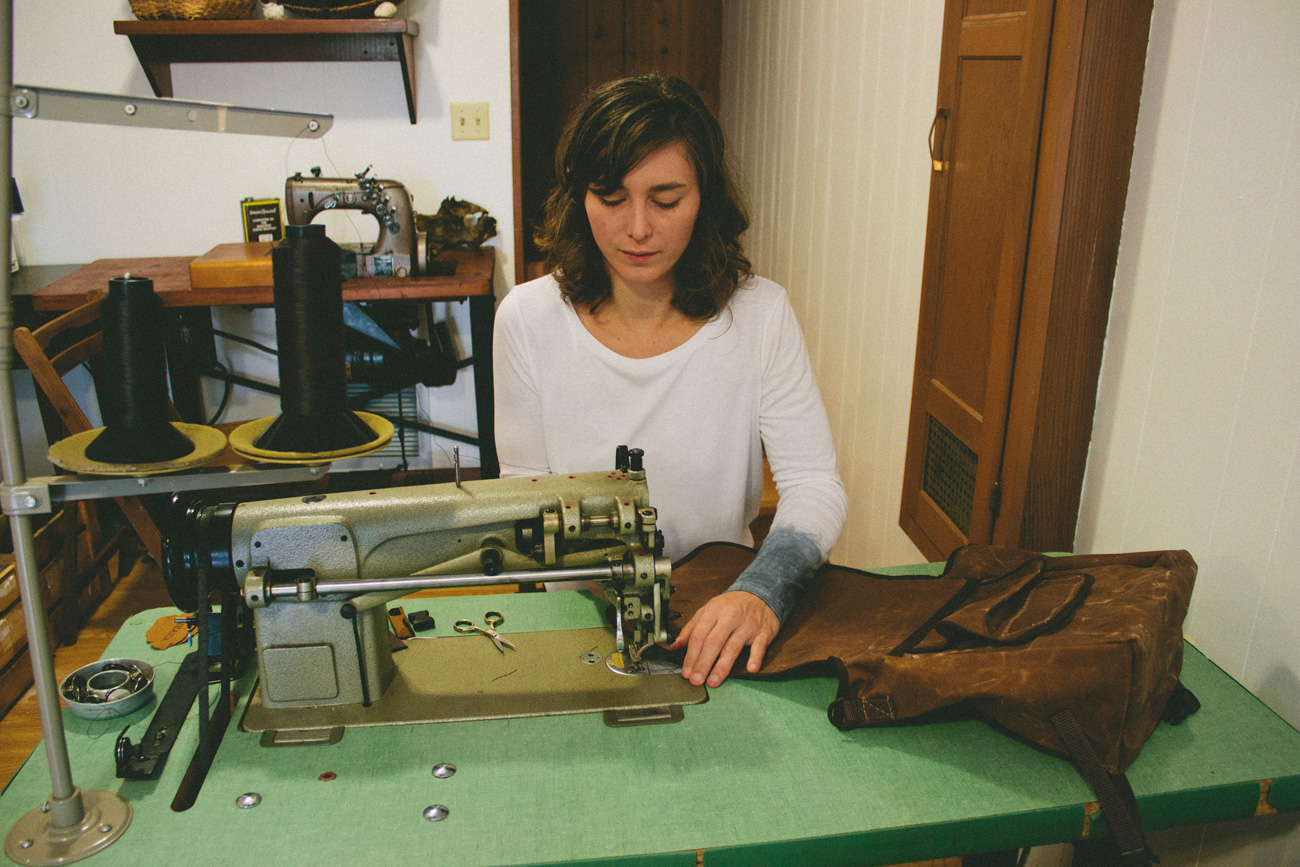
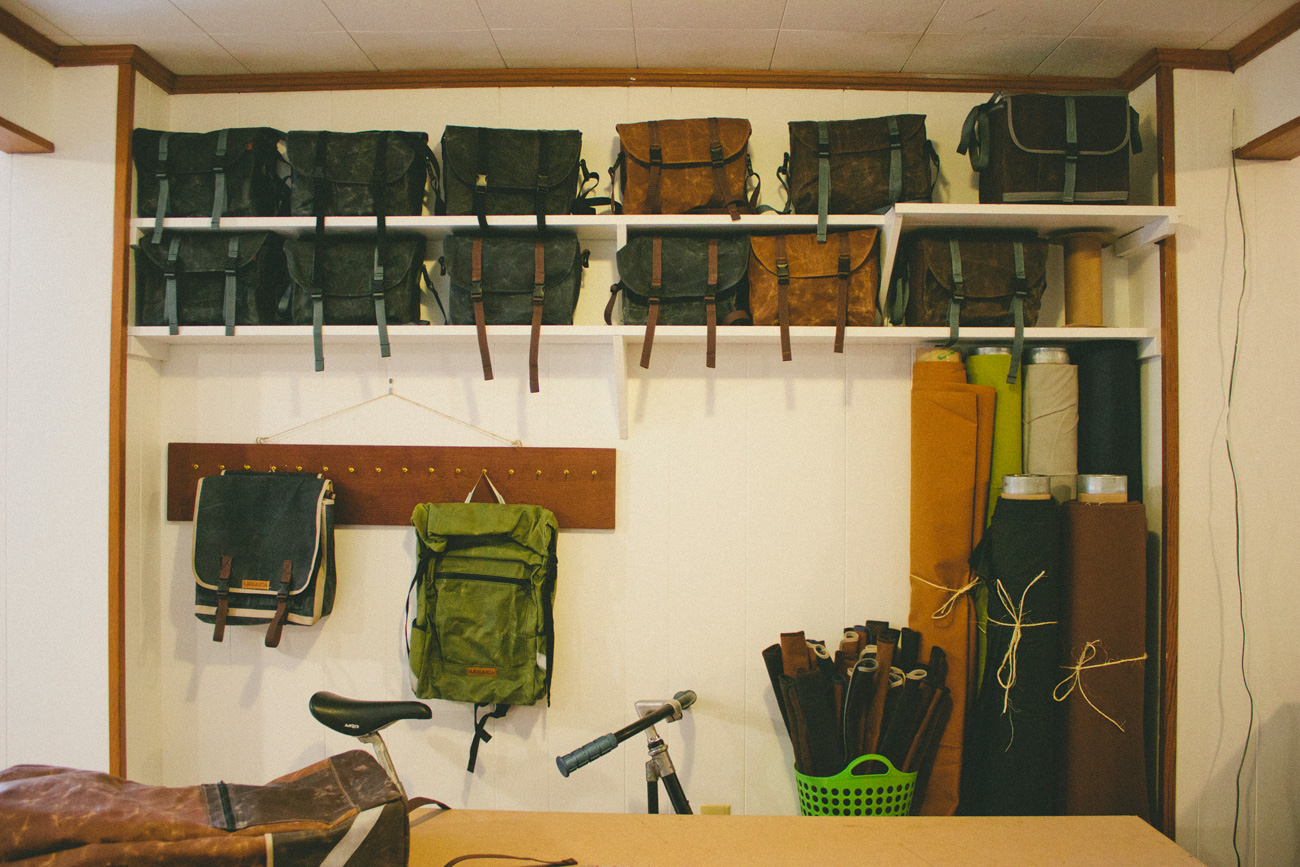
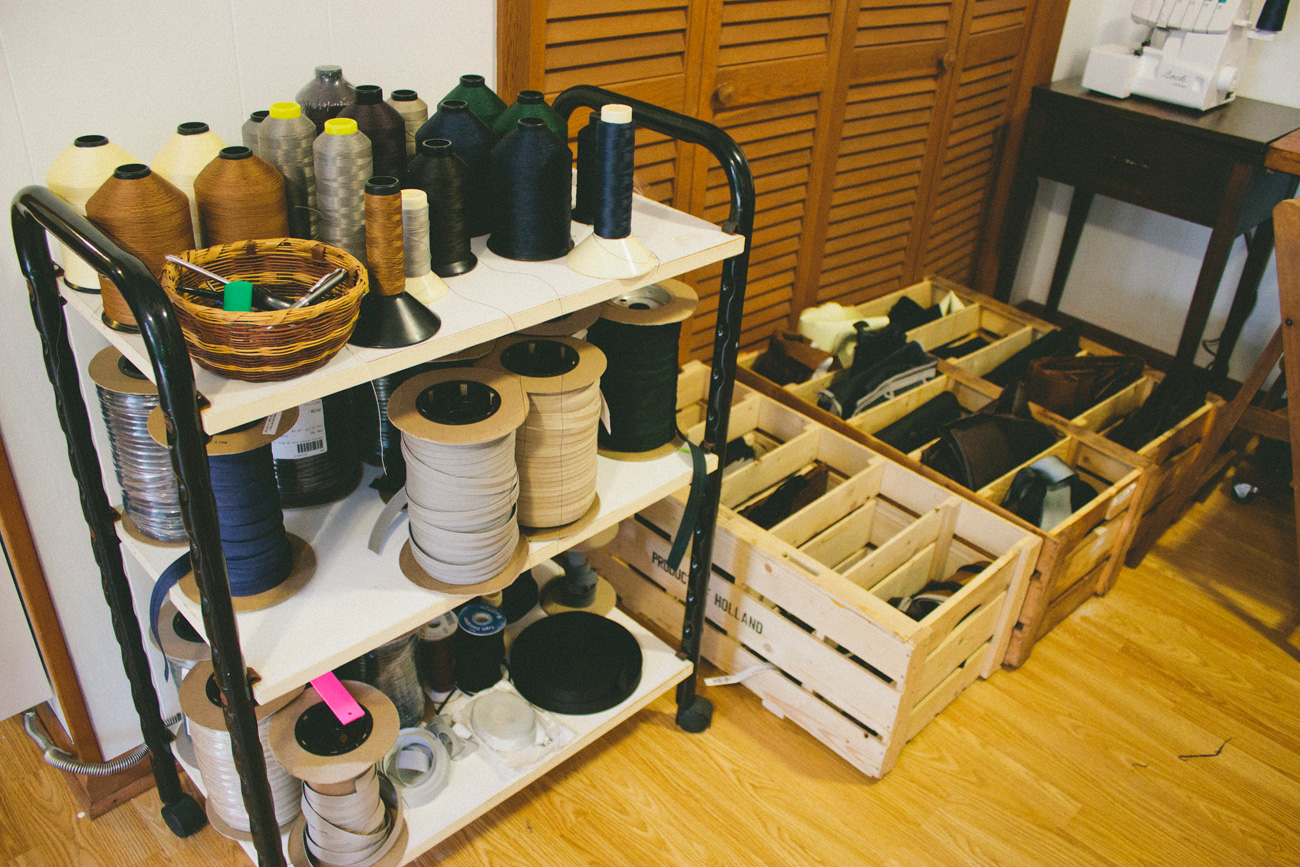
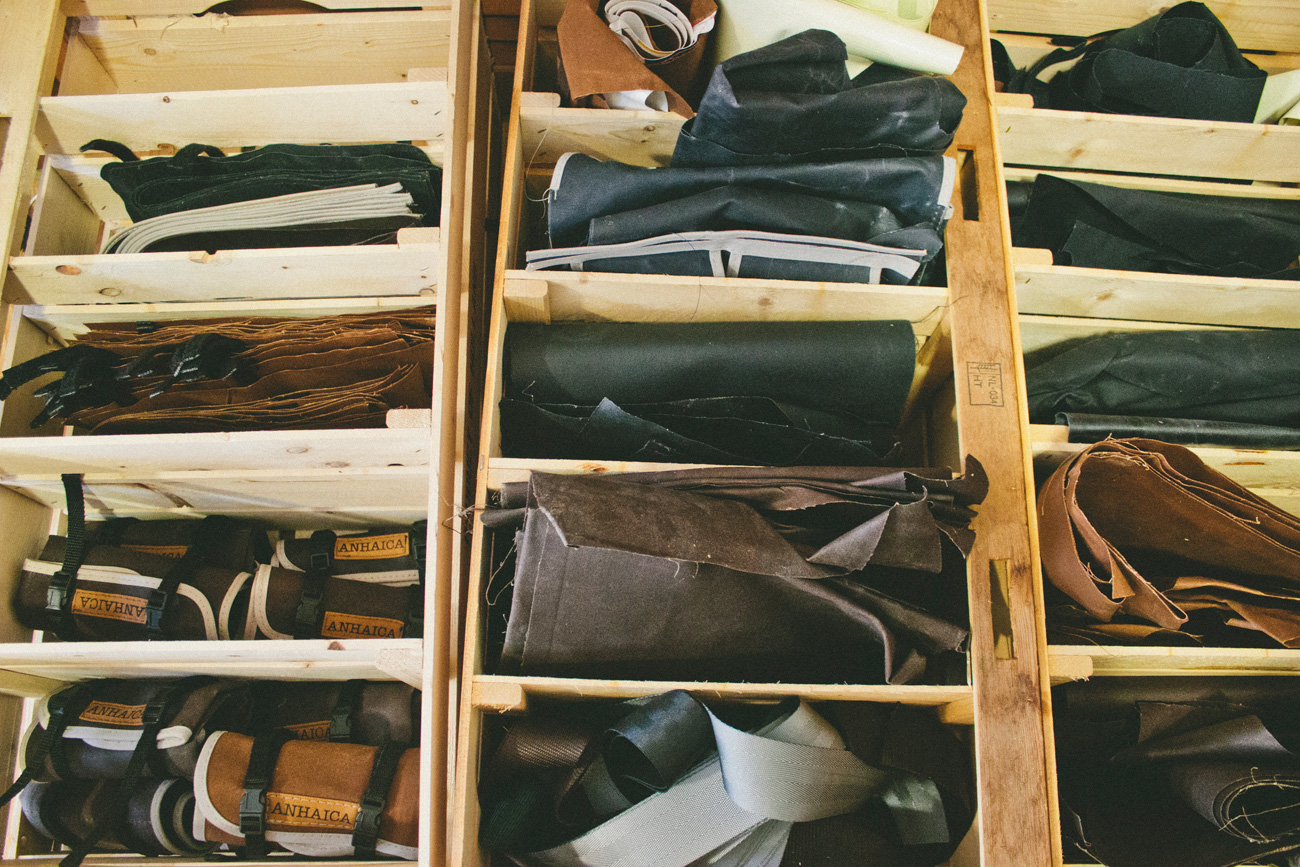
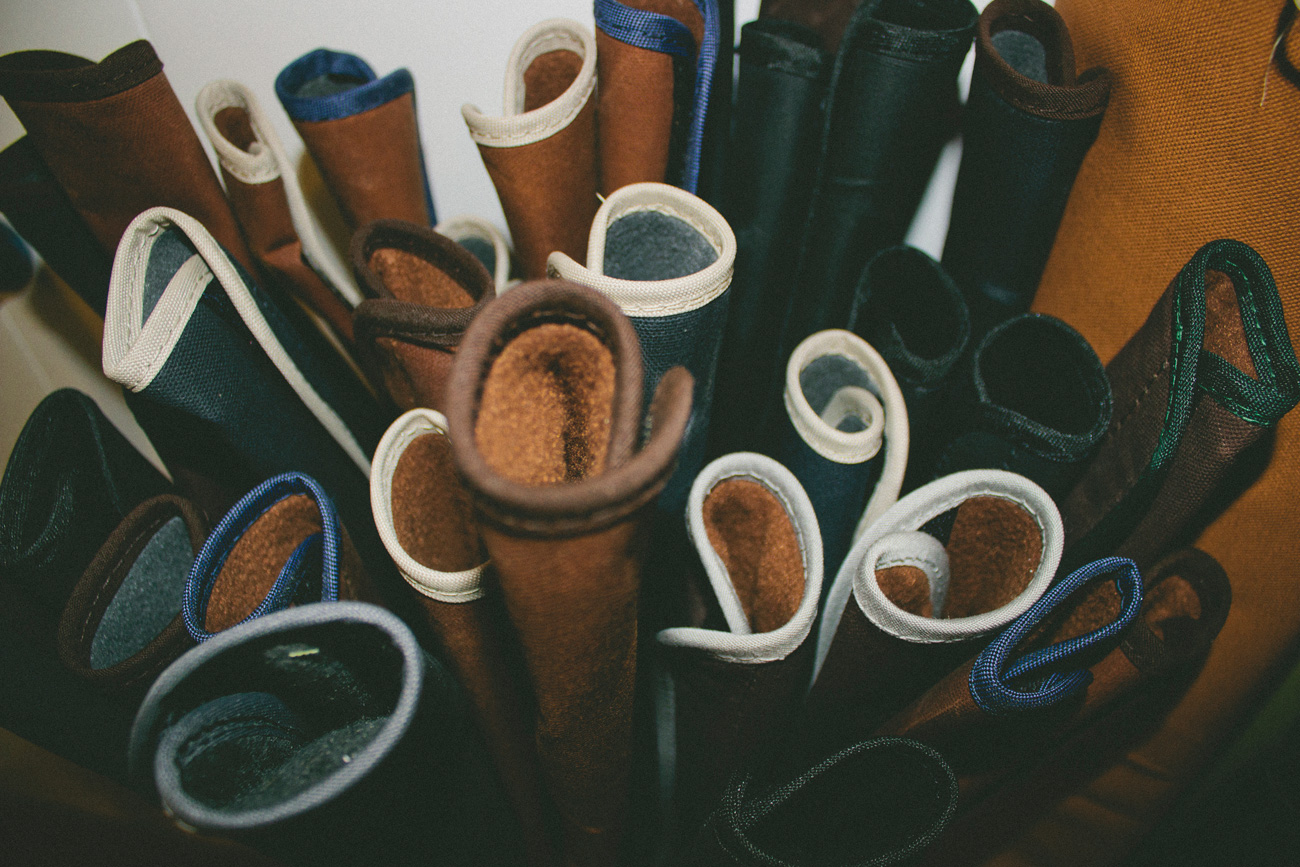
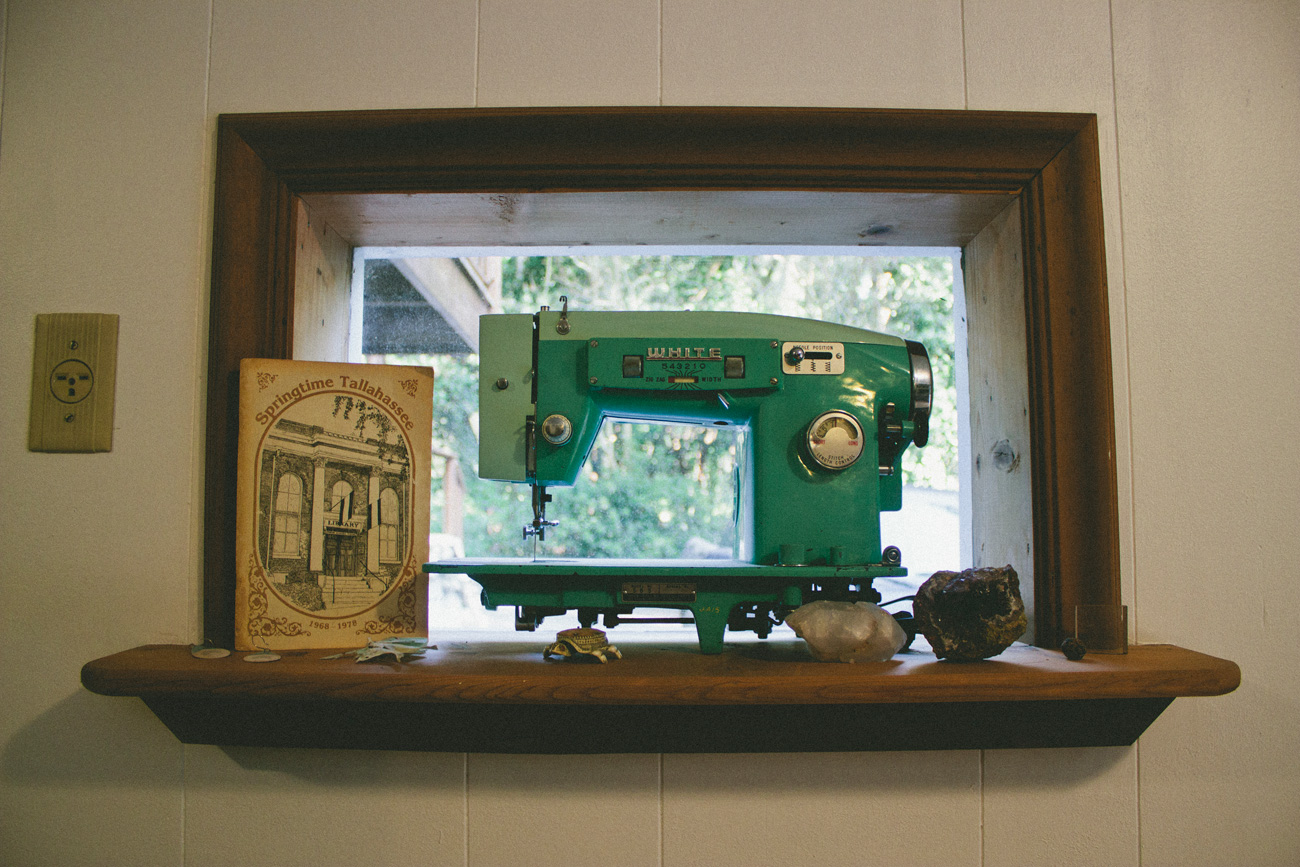
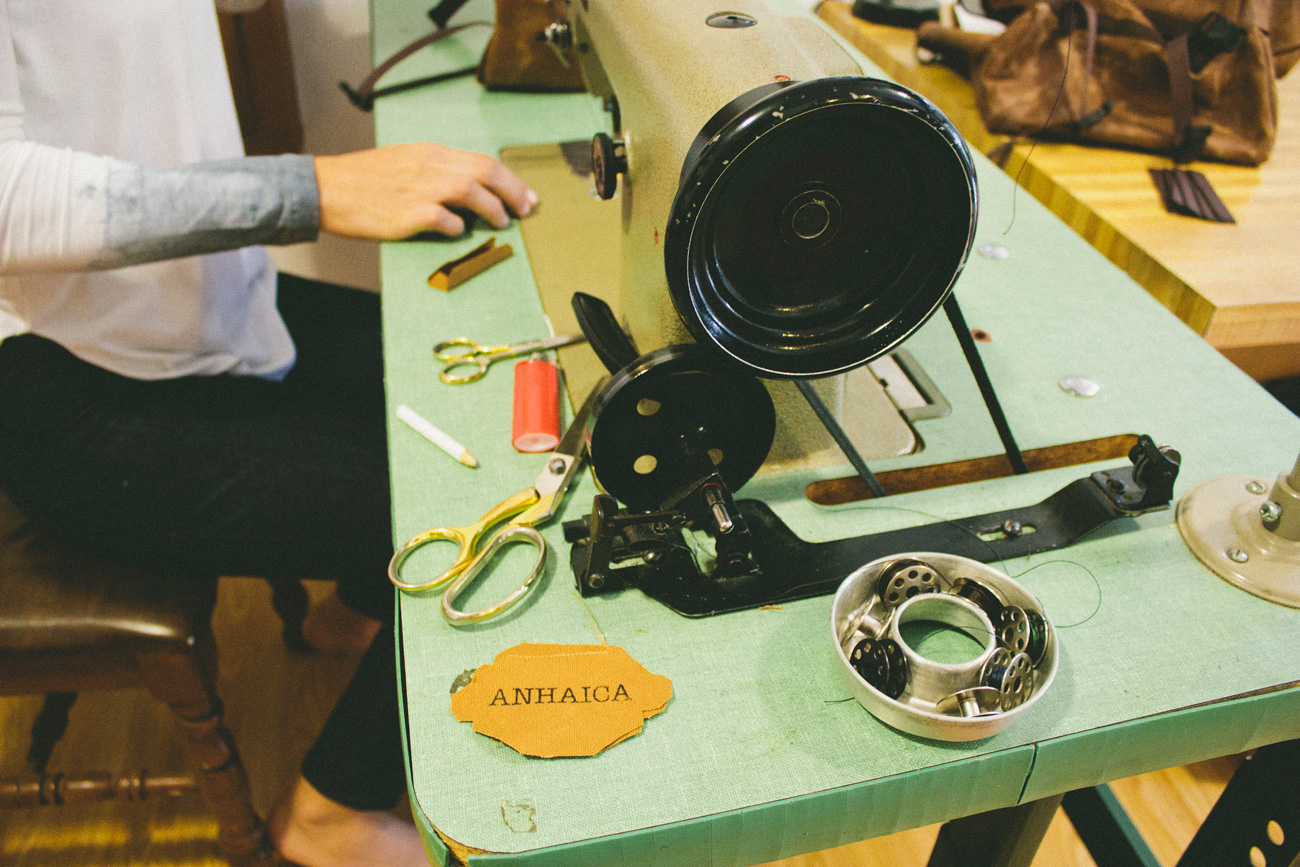
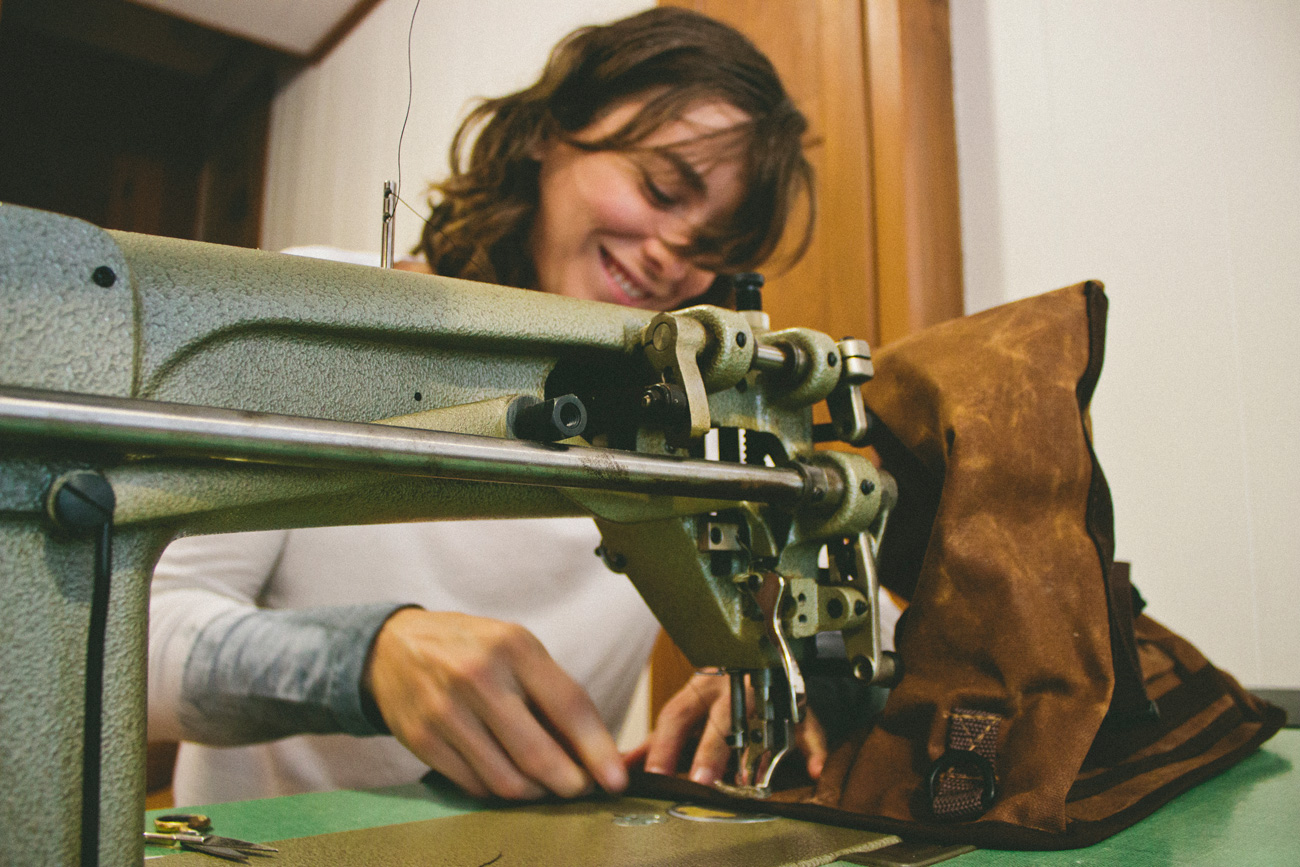
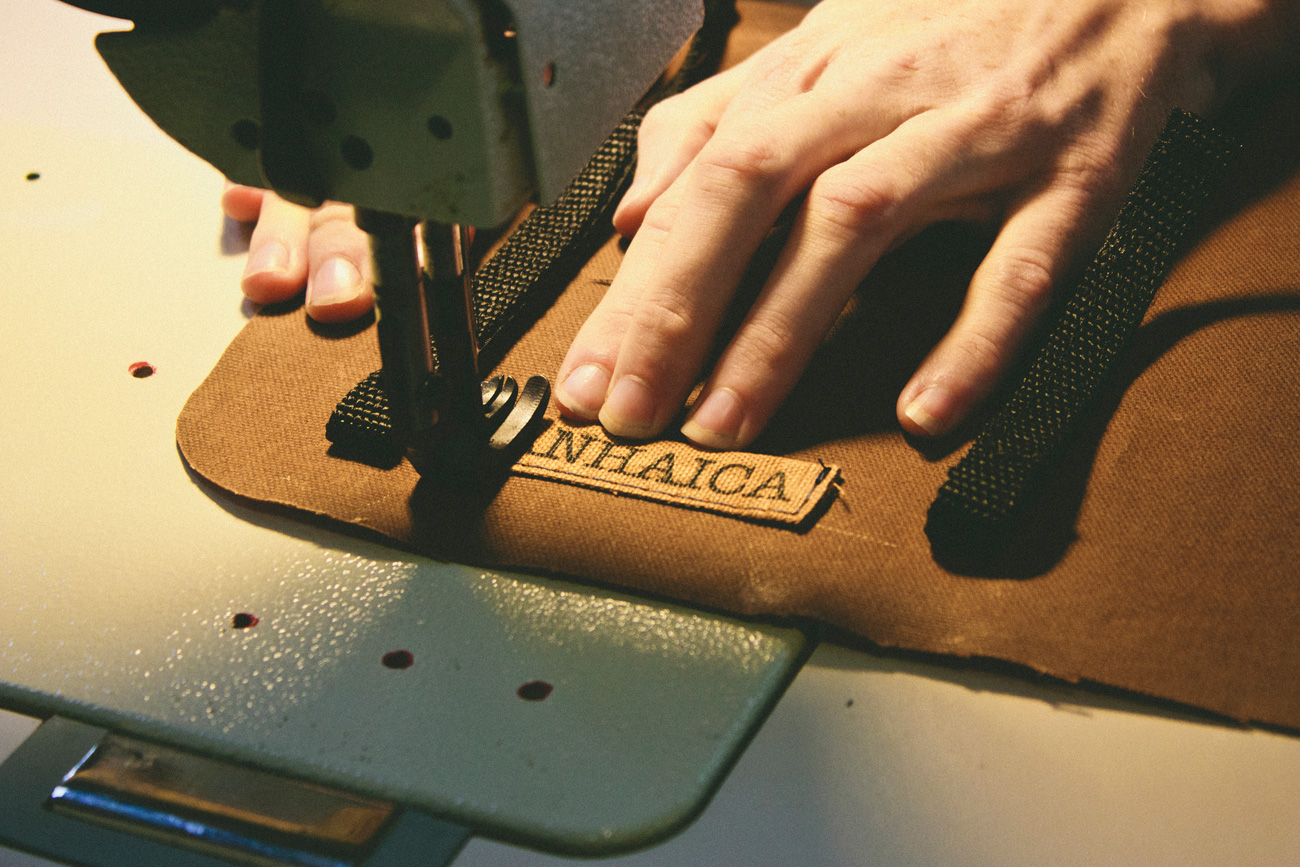
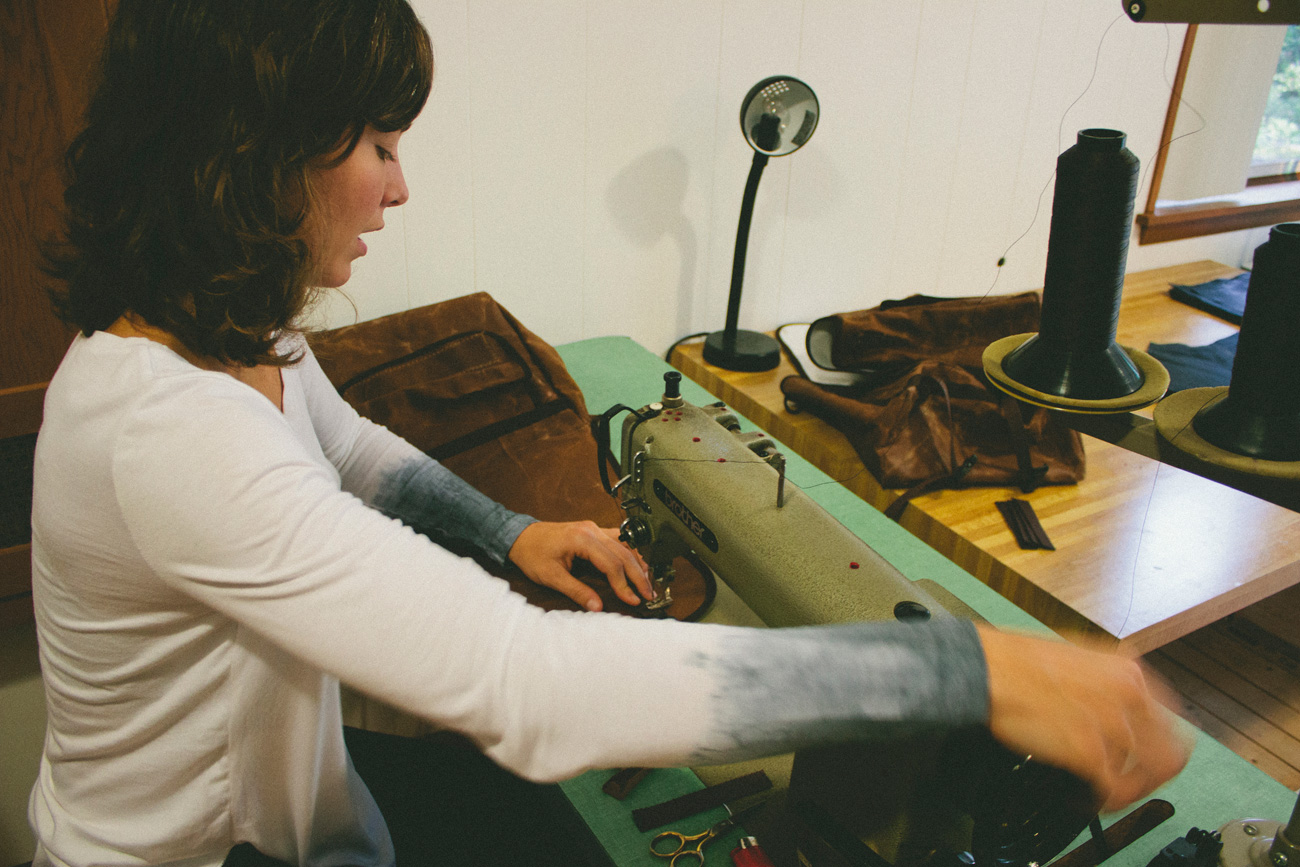
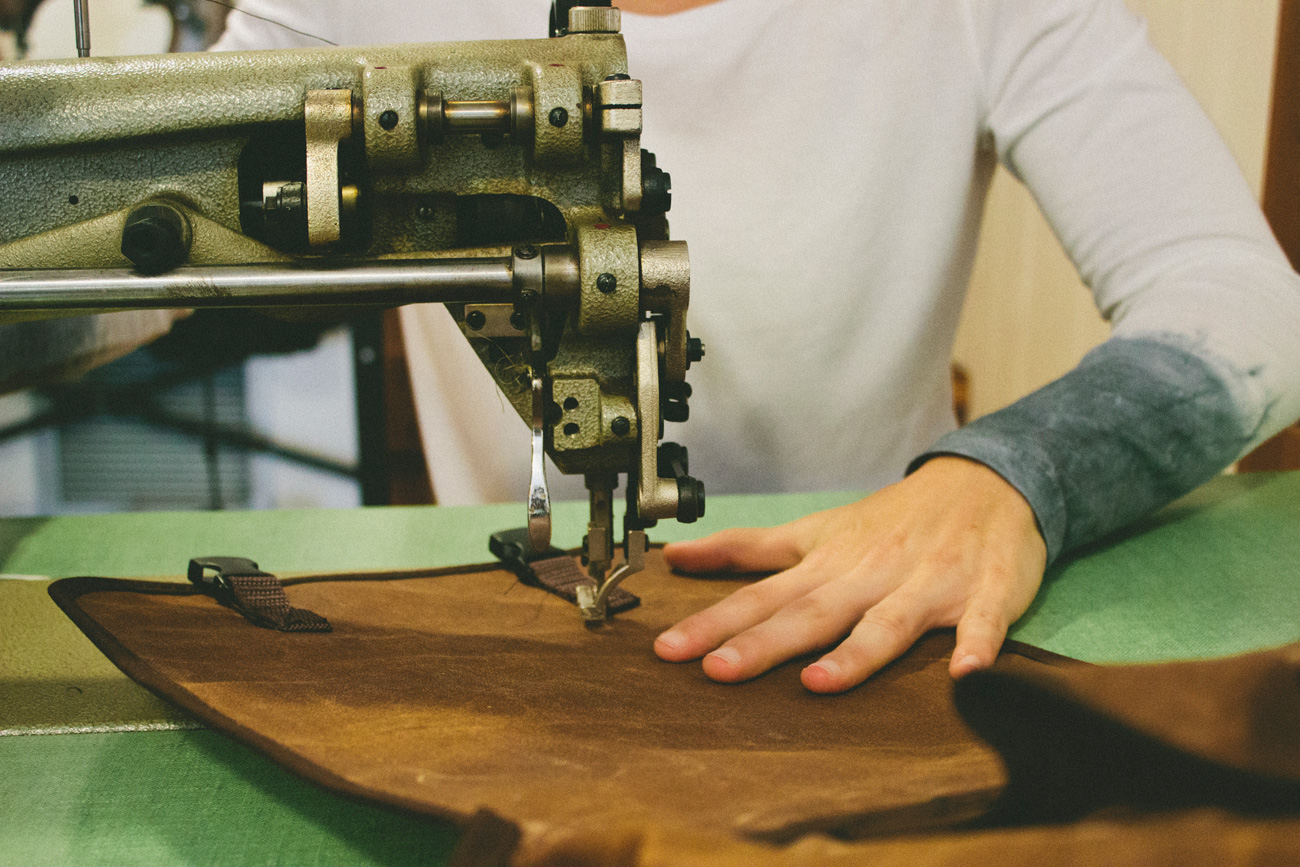
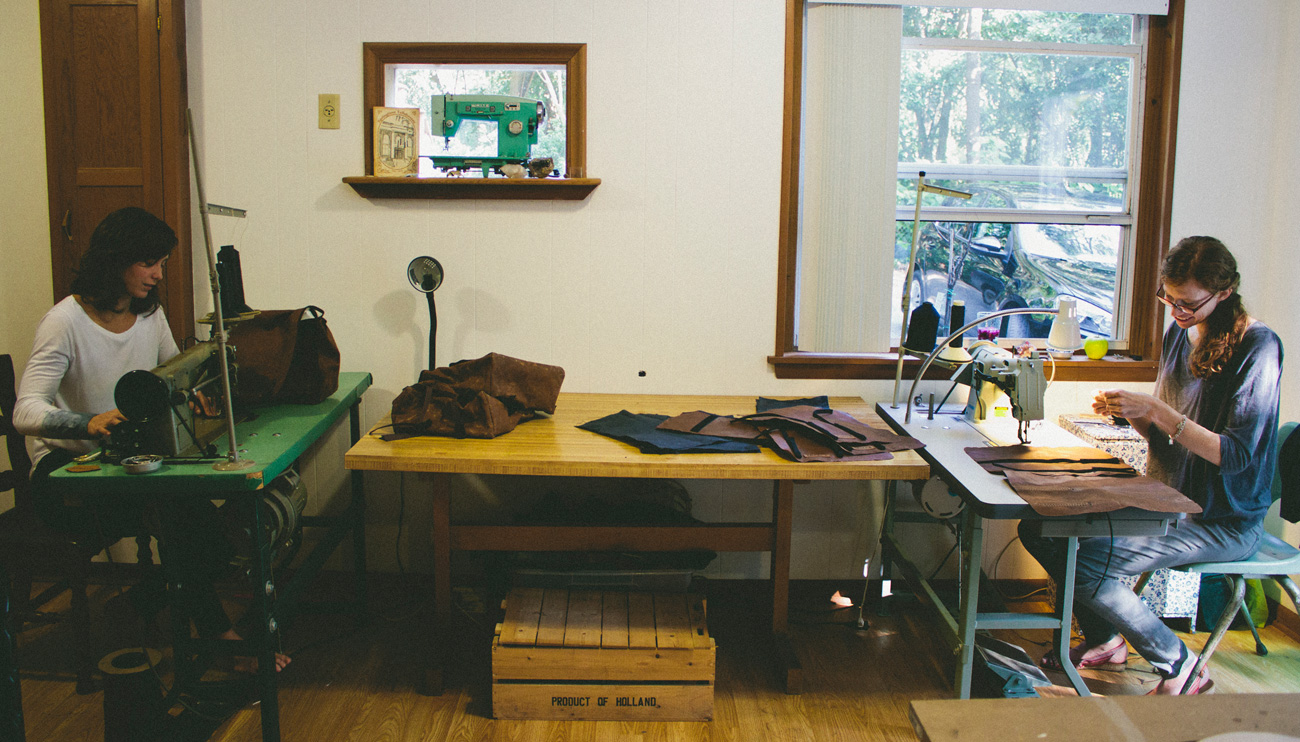
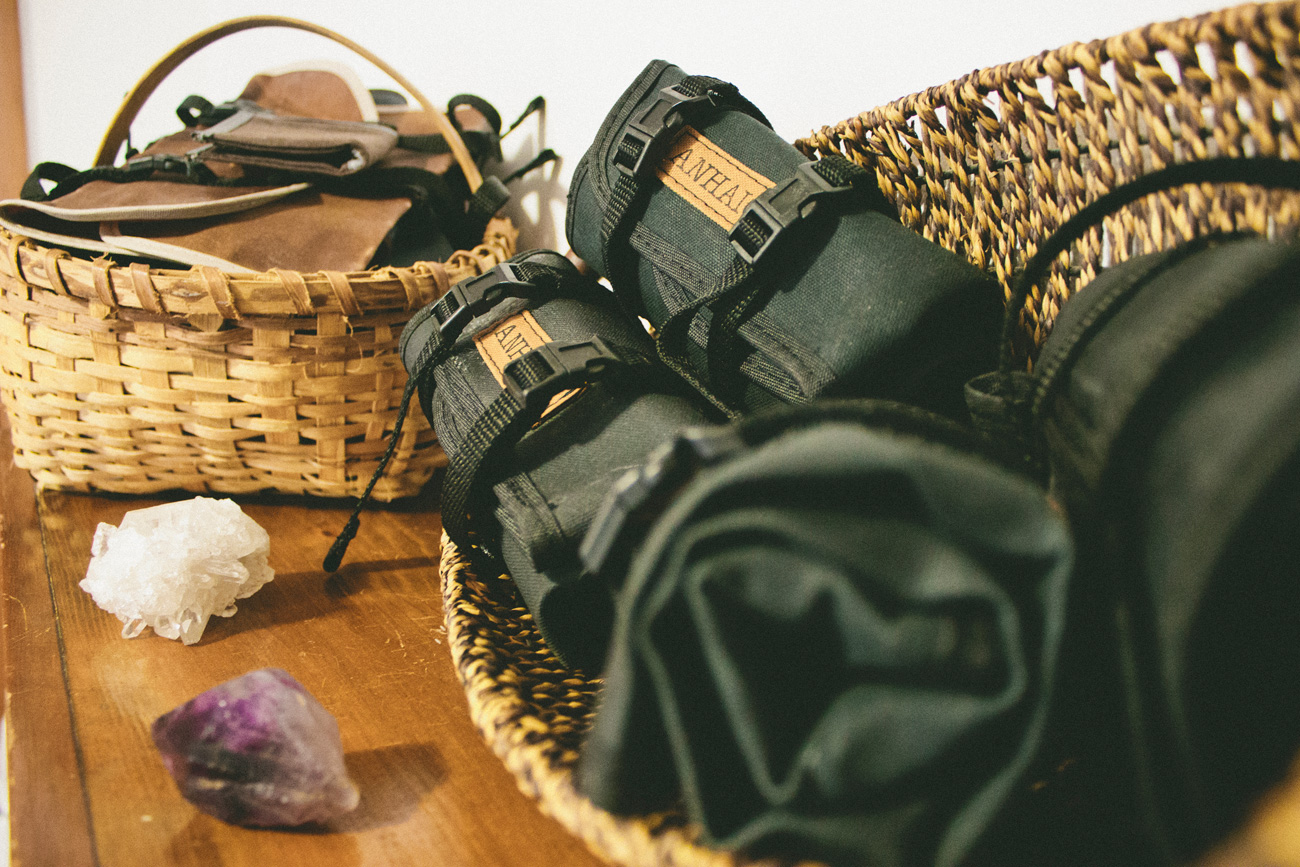
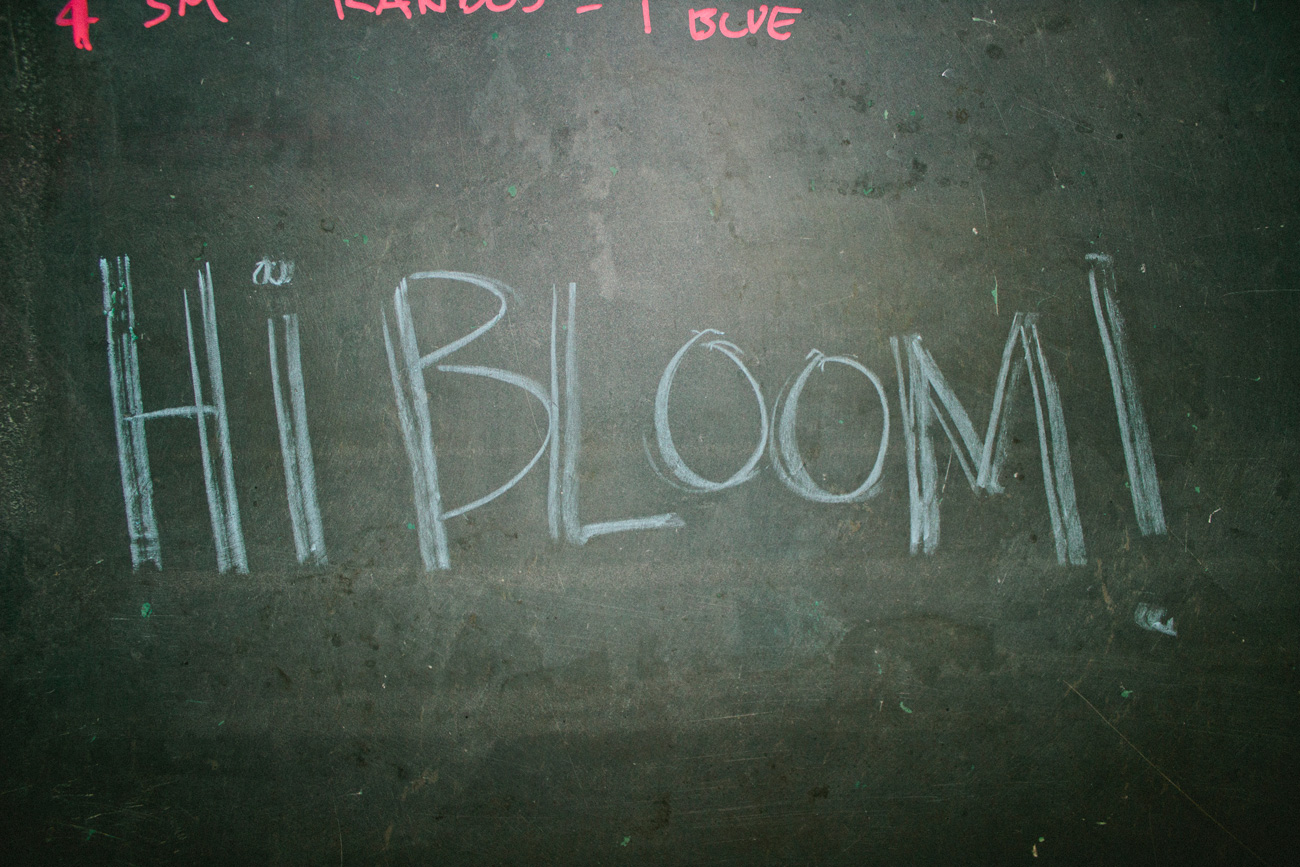
" I hope that I am playing my part in creating a world where people are riding bikes, saying hi to neighbors, shopping at community grocery stores, where growing up doesn't mean losing the joy of an afternoon ride, where they see the direct impact that the money they spend has on their community. "
Marina ships both nationally and internationally. Visit her online shop to get your own uniquely made (with love) bicycle bags and backpacks. You can also contact Marina directly through email, [email protected].
Comics: Skunk & Badger Episode 3
THREE POEMS: BY MURK SWAIN
Slow, sick deer
dragged down openings of damp and silver lush
I see pale white gristle, a gift from the coyotes
to roundworms and brown mice
In thundersnow the doe lay dead
bloated velvet, then suede
until it is worn off and lost
being only felled flagpoles
on the swelling surface of the Moon
In present townward plodding
the Hampton Union depreciates
behind cracked glass constellations—
a dollar at daybreak, a quarter at noon.
Bells that chime once when you pop in
and aught when you get
Frontierschild
on the Greenway with an azalea switch
where children compose their poems—
running in packs through the tall grass,
or fanning out, but always scribbling upon the hill
Flank the camp of ponytails
and overalls holding powwow
near the reeds with primitive swords,
peeled raw and whooshing wind
Come upon them slowly,
understandingly, and silent
in leaderless battalions
tailing cursive script paths
But flush them out nonetheless—all,
and indeed they do; you and I barking
from the edge of the field like squirrels
when the sky goes pink. Come back,
come back and fingerpaint us something
pretty. There’s a dog hair on your lip
worn like a feather in Ferdinand’s cap
The Old Guitarist
I had no common sense even then
Too much in the spirit of the search,
my grandpa would say, I seen you
at the window when the sitter pulls in
Ever heard of a bootless errand?
Her ’83 Pontiac LeMans, a loose hand
trying the door, then rummaging for keys—
Lori? I said
The other end of adolescence, I thought,
should reveal The Old Guitarist he sought
in me, strung out like laundry on a line—
that deep blue interlude
I was to play between a life in lieu,
requited only by the consistency of its
soothsaying—a song structured to uphold
the posture of aging self-constructs where
I am to be grateful, like for my bones
Rising mountains
Rising higher beyond what
their tattered horizon can alone bare—
Murk Swain has spent the last several years farming, wandering, and working as an invasive plants biologist in the Red Hills of north Florida. He enjoys trespassing (and those who trespass against him), faunal greetings, and fires. He'll doss down and doff dawn early, quoting Knut Hamsun; or get Whataburger at 2 a.m. with the best of them.
Comics: Skunk & Badger Episode 2
Comics: Skunk & Badger Episode 1
Clay Doran is the Jacksonville-bred cartoonist behind Skunk & Badger. This comic is the first in a series of comics that will be posted on our site. Skunk & Badger is a political satire of american culture and the punk community. When Clay isn't painting or doodling comics he designs for Sun-Ray Cinema, plays music in bands Youth Ministry, Radical Face, Captive Bolt and Novak Seen and pretends he's in a video game with his step cat Roger.
